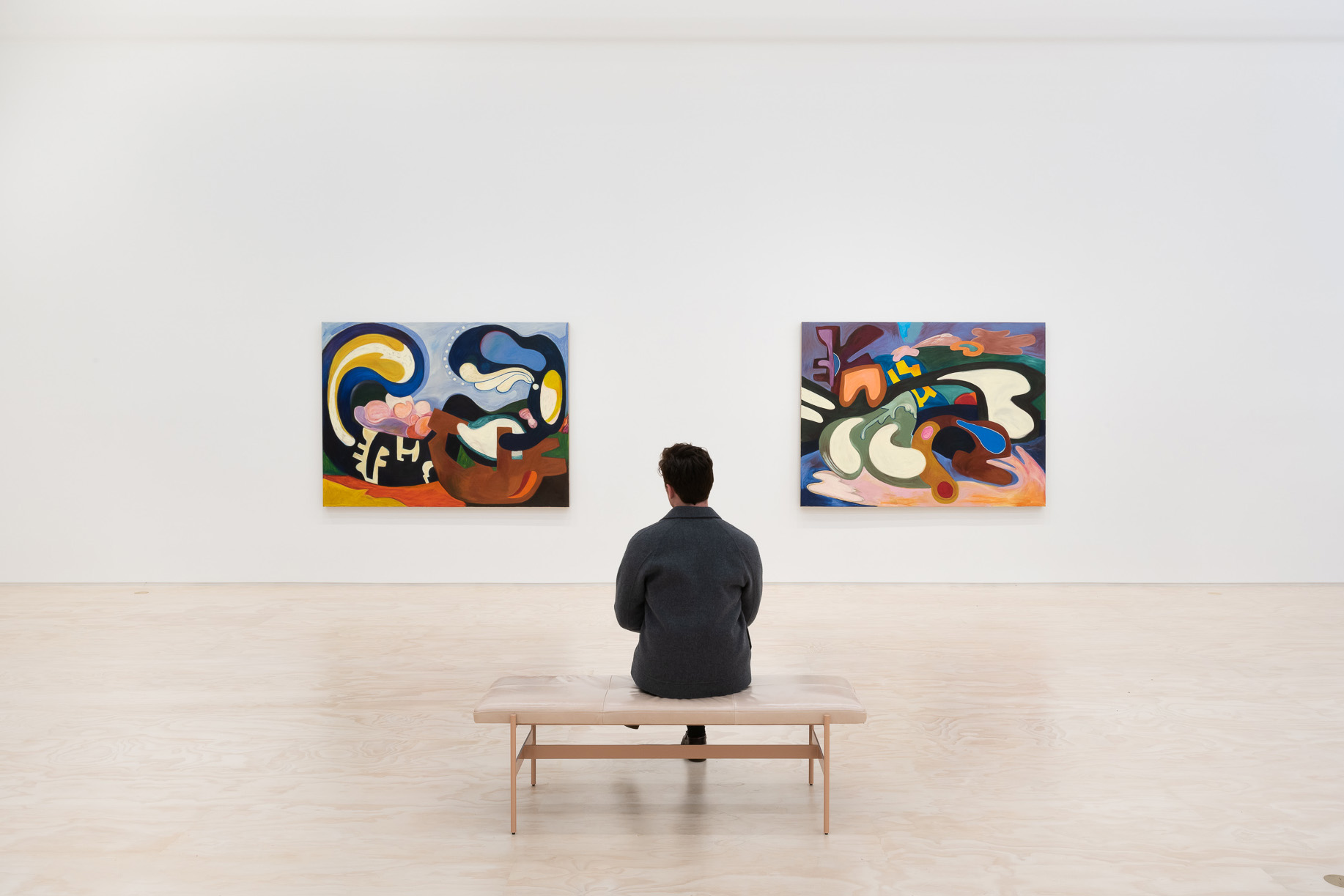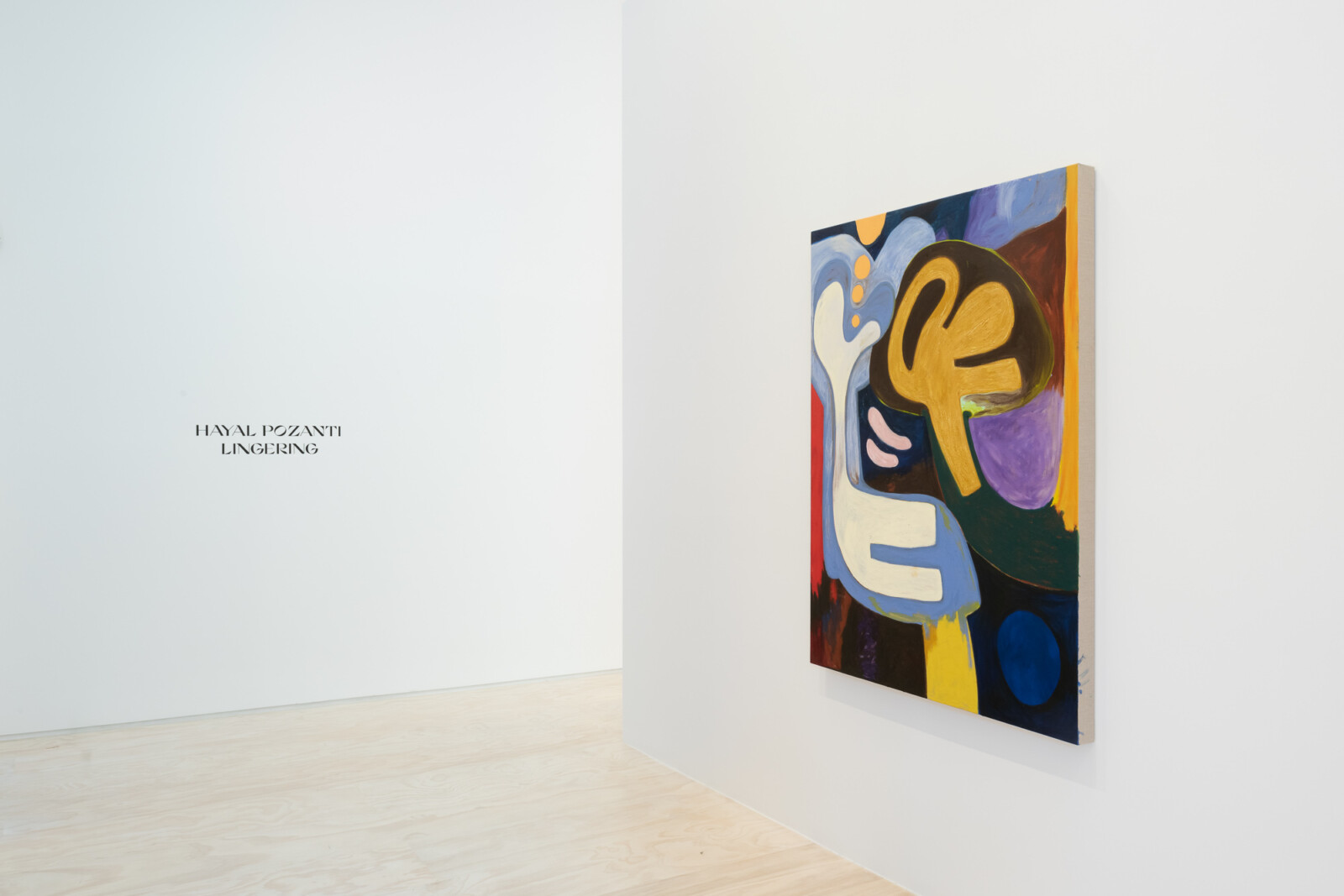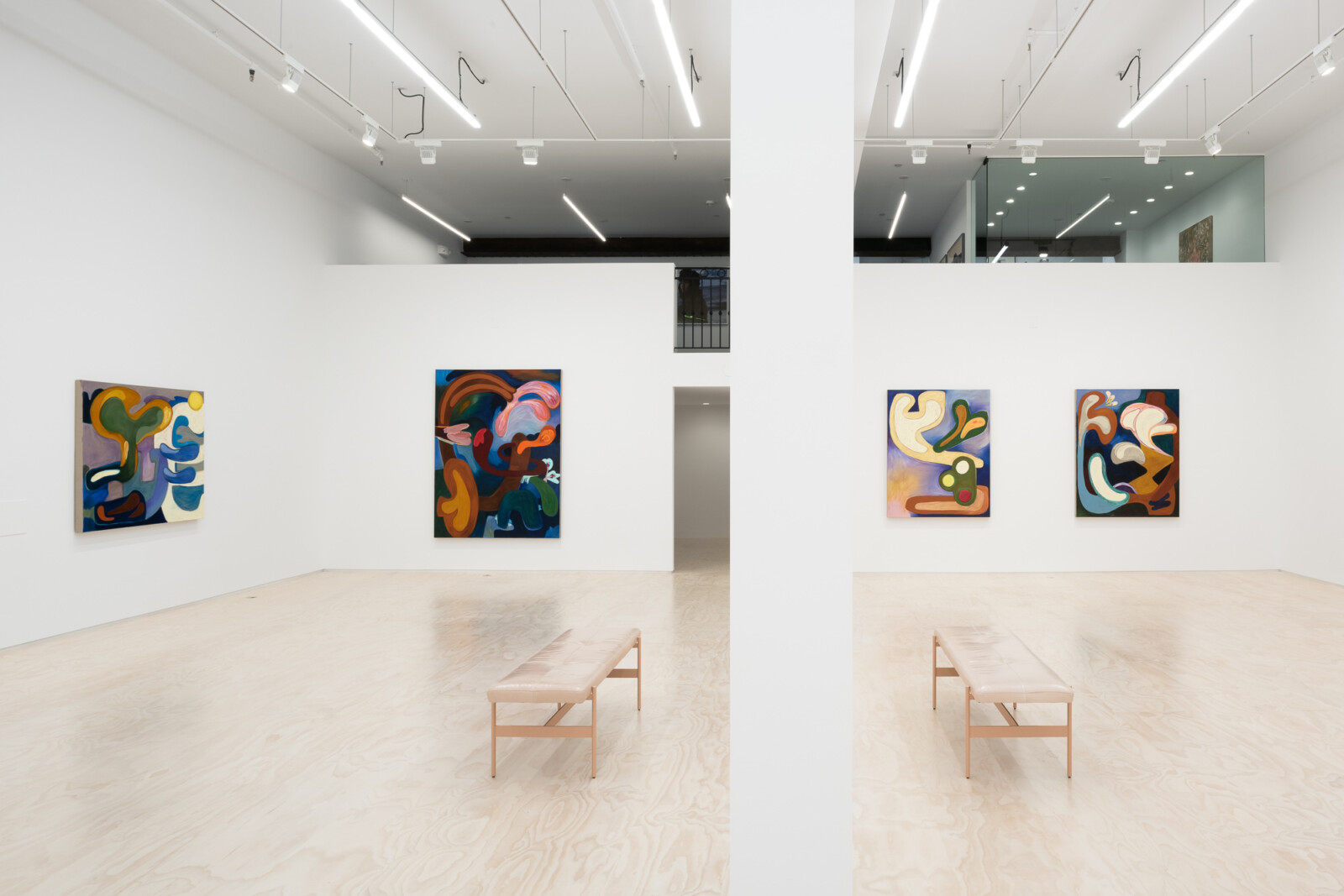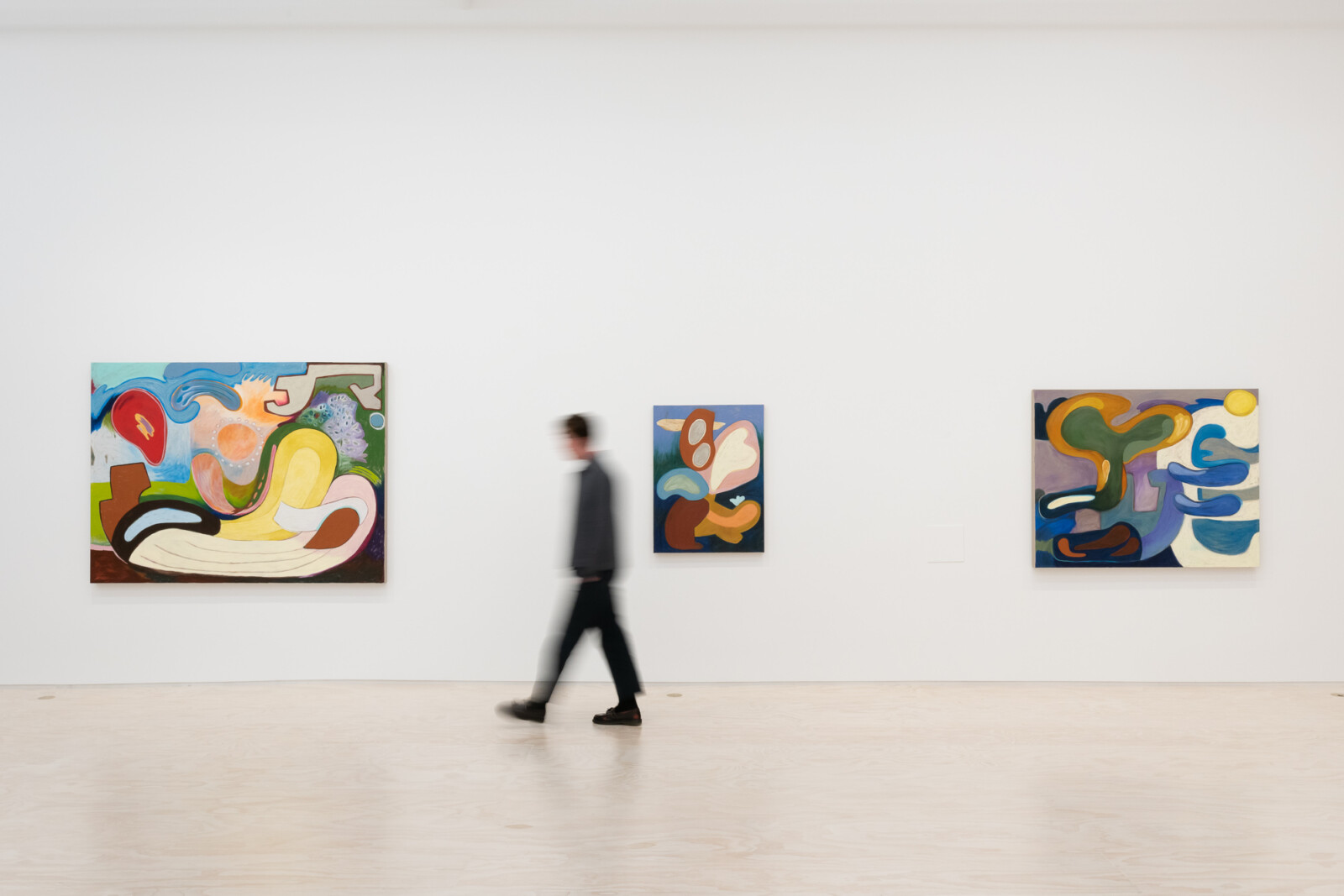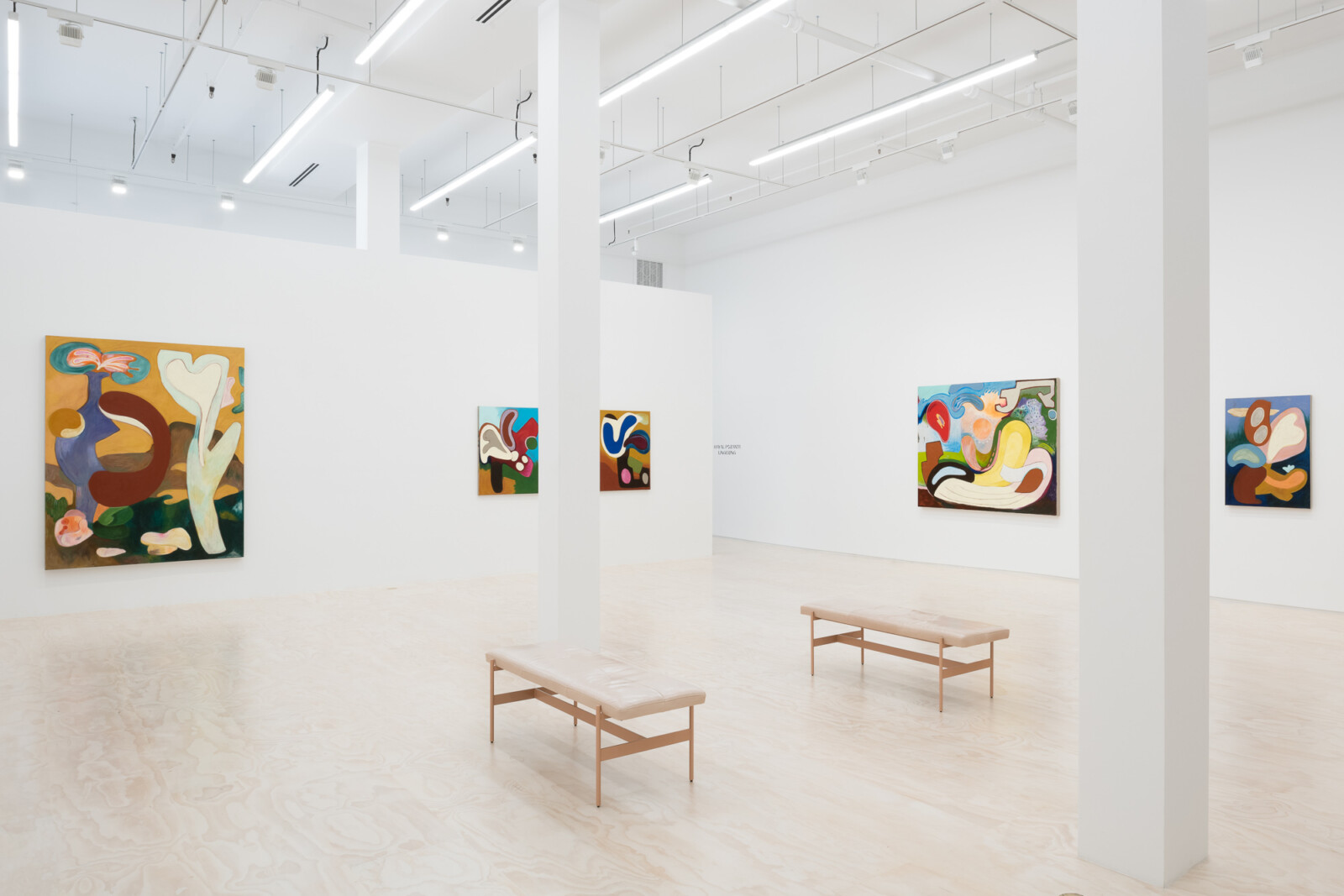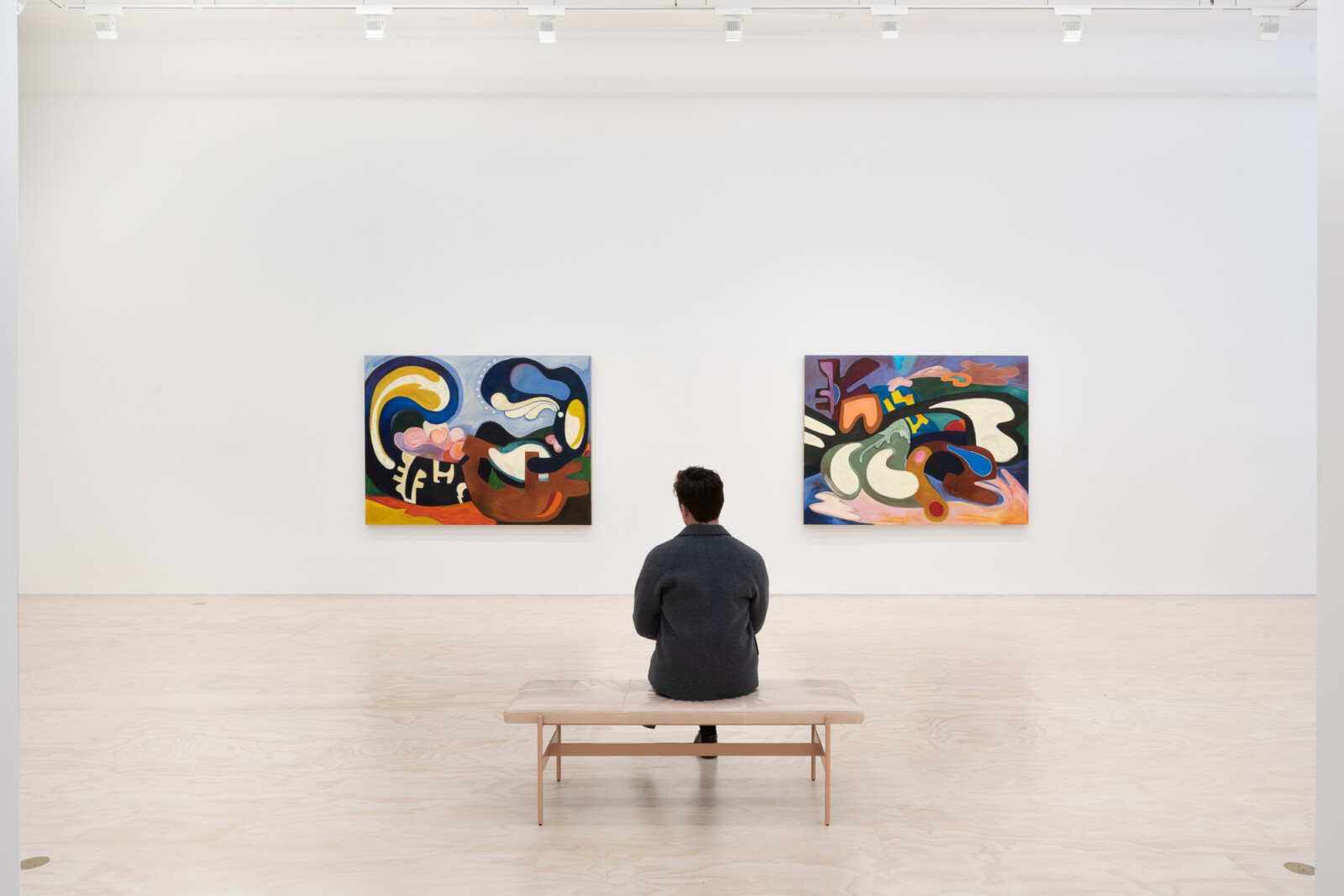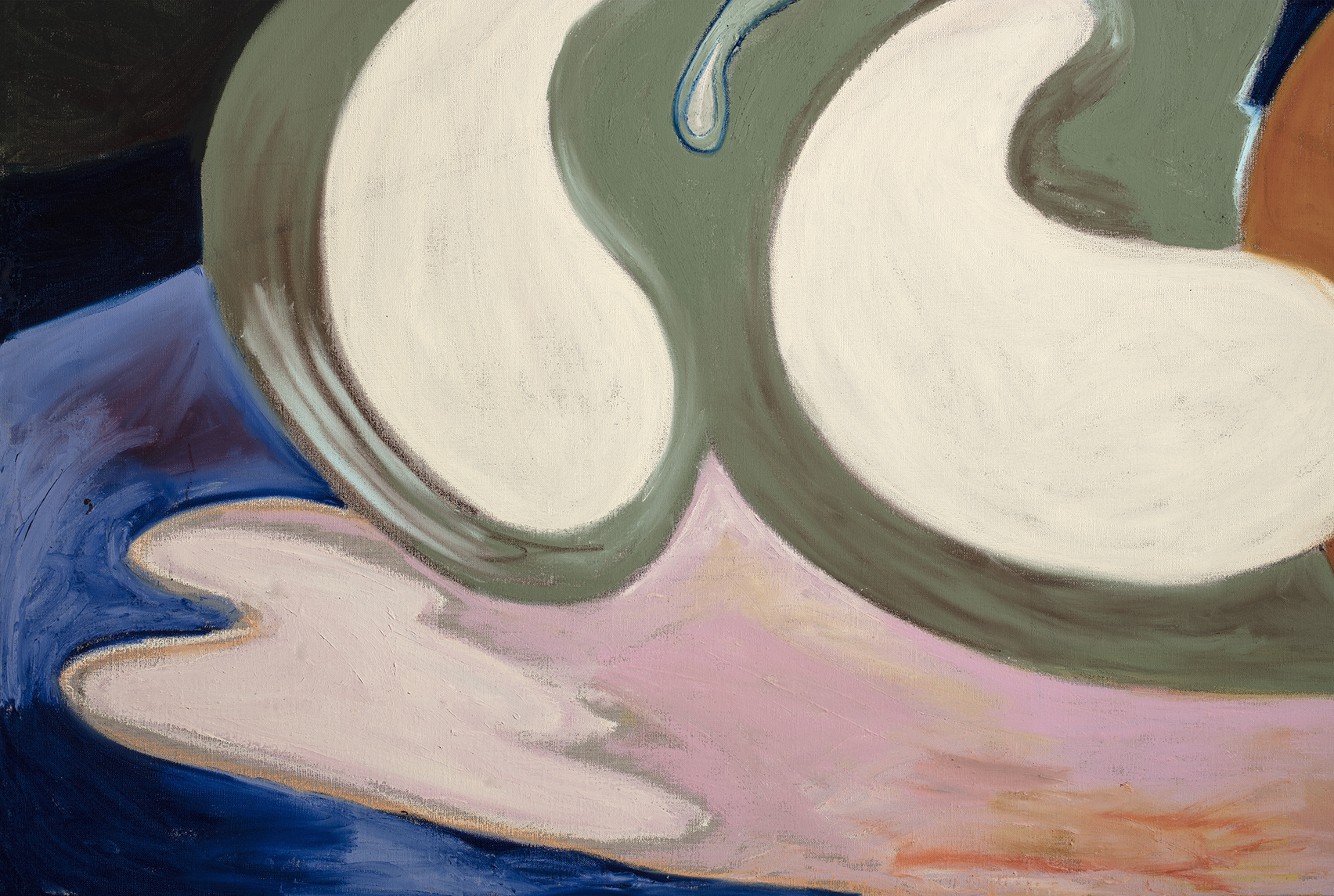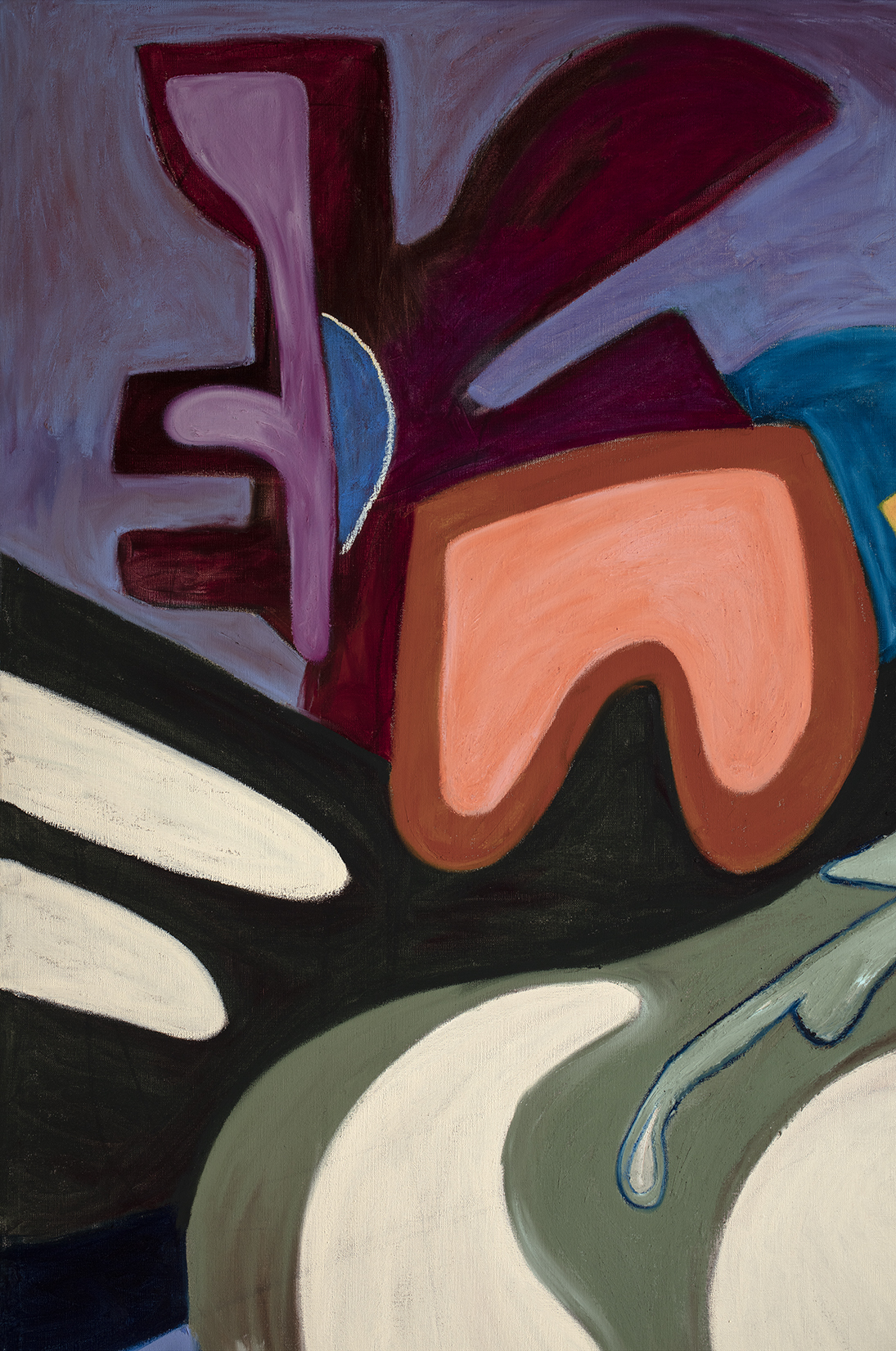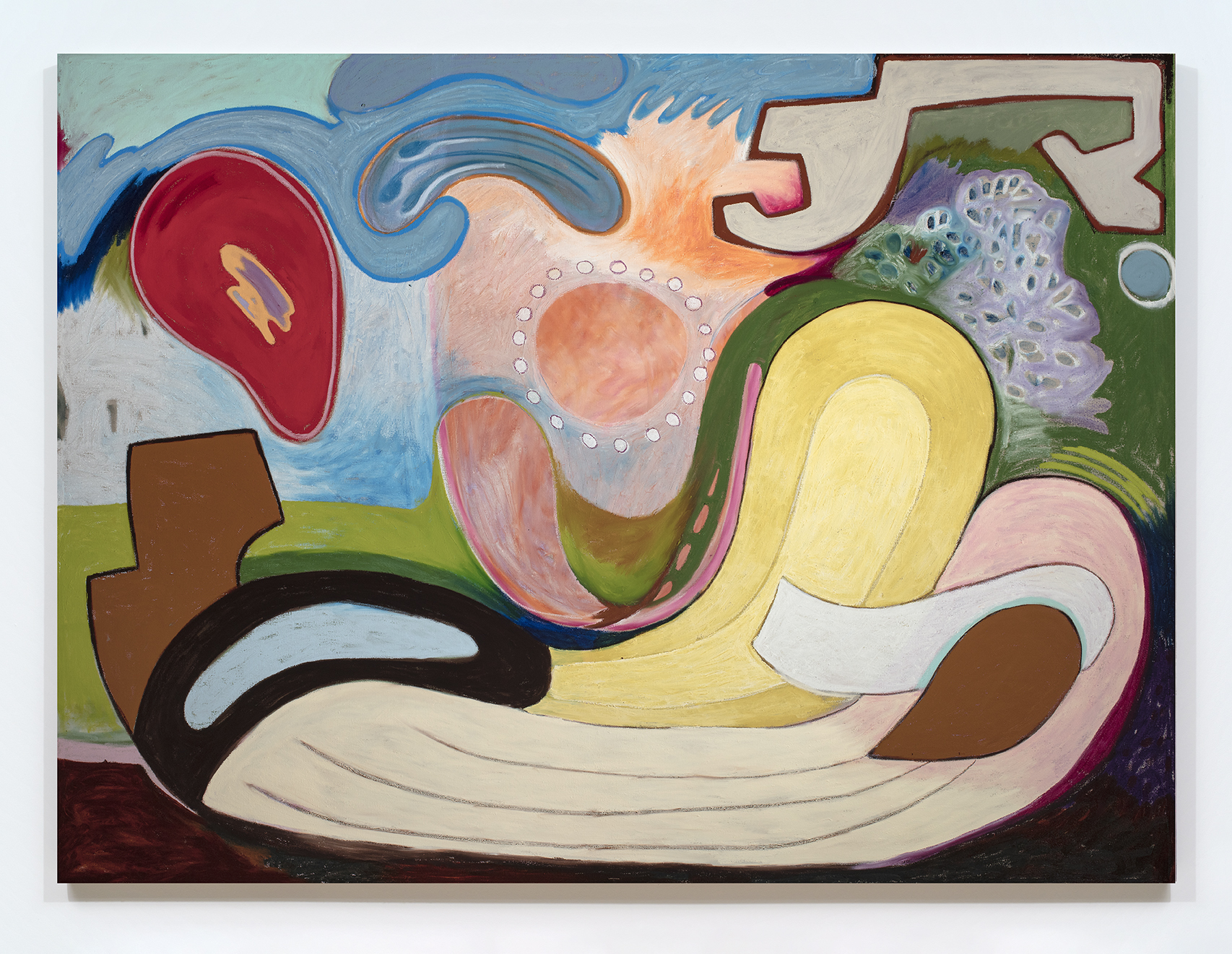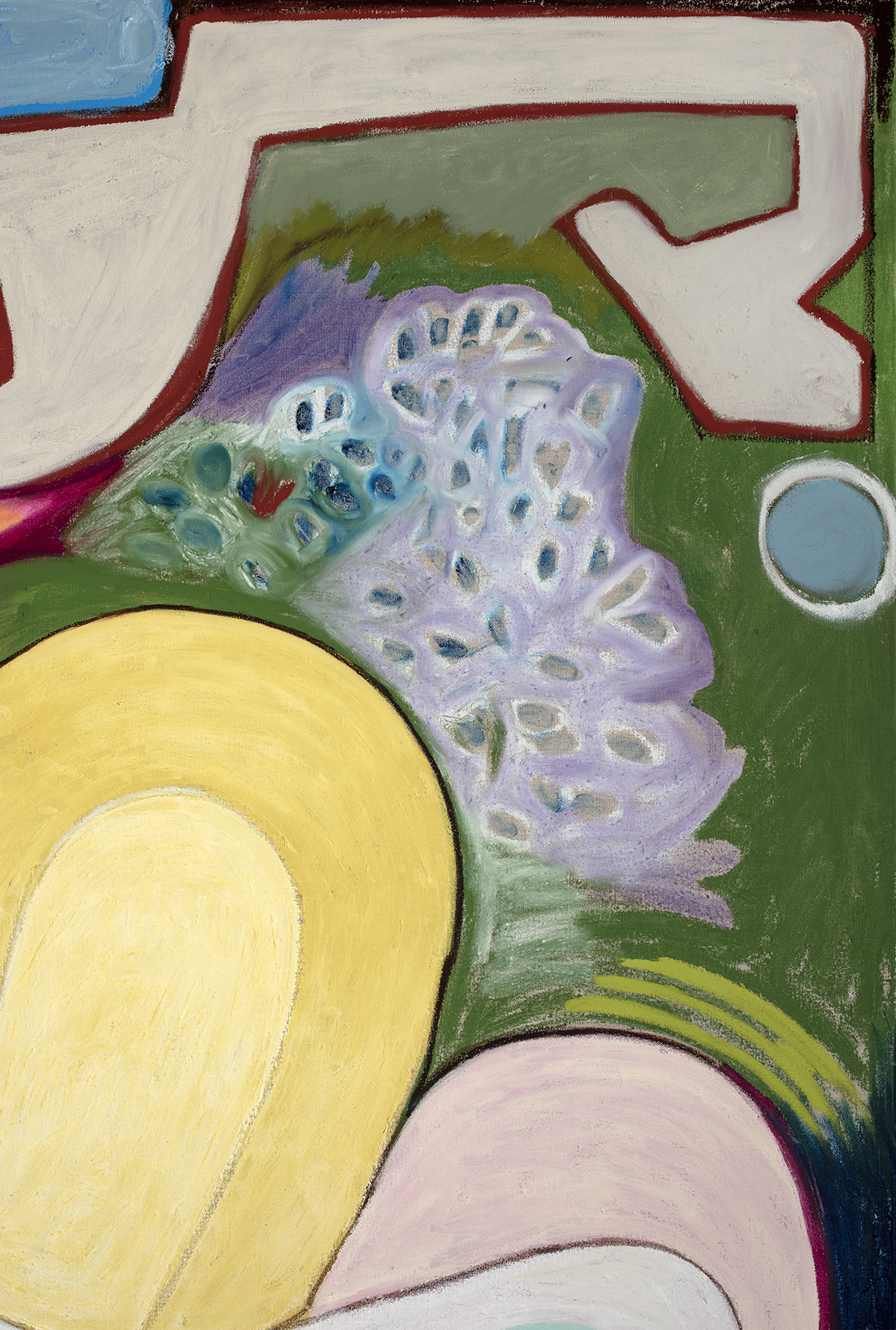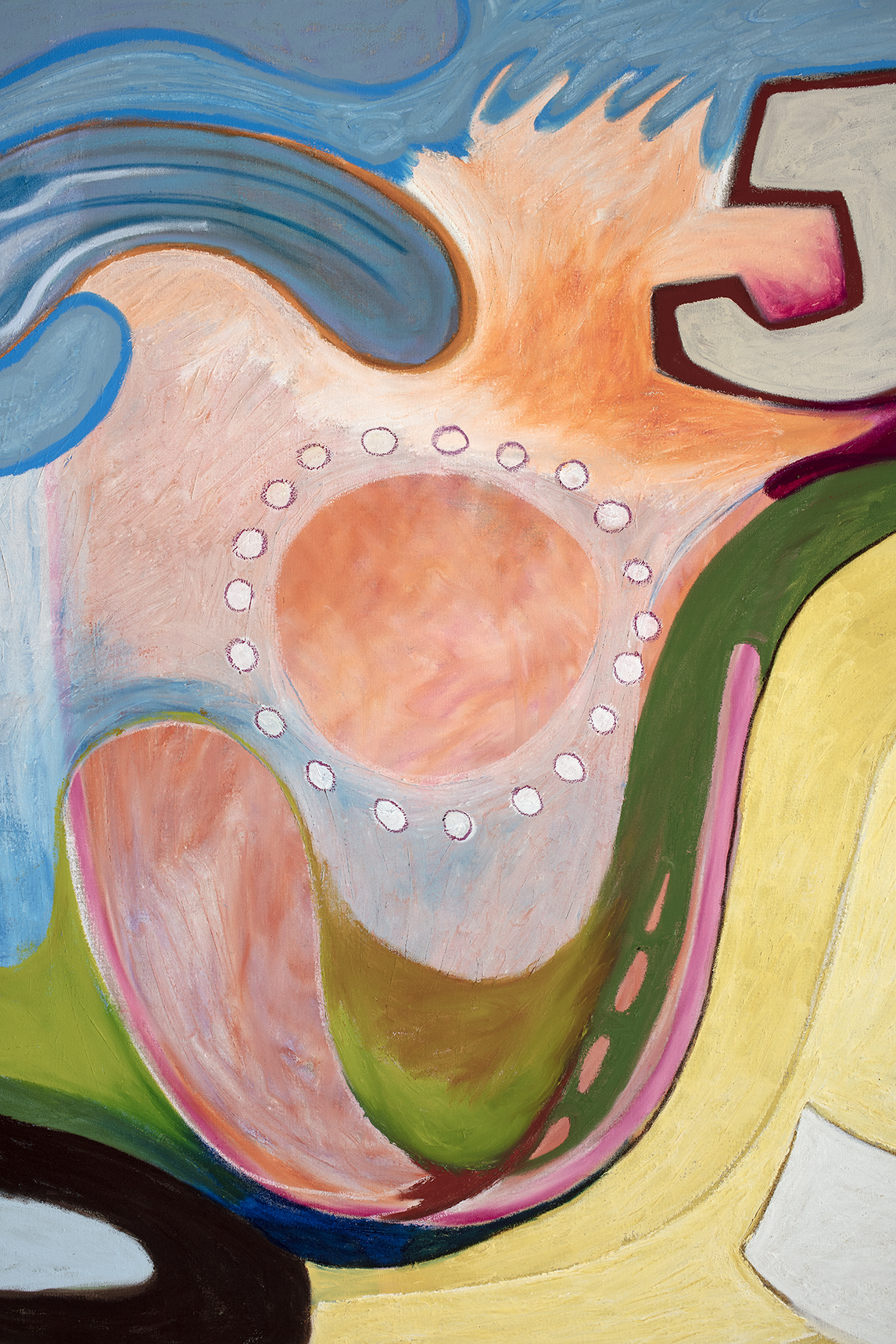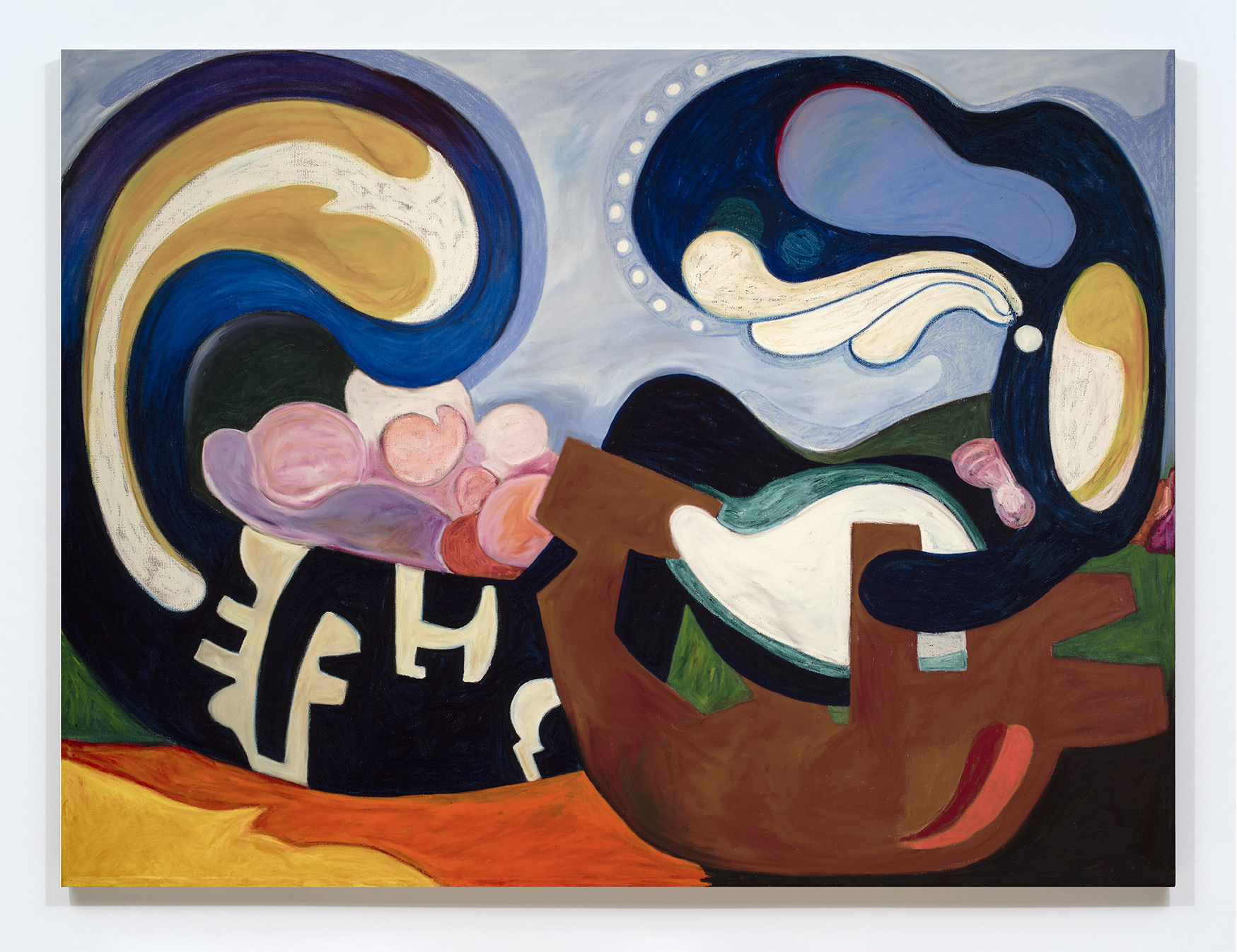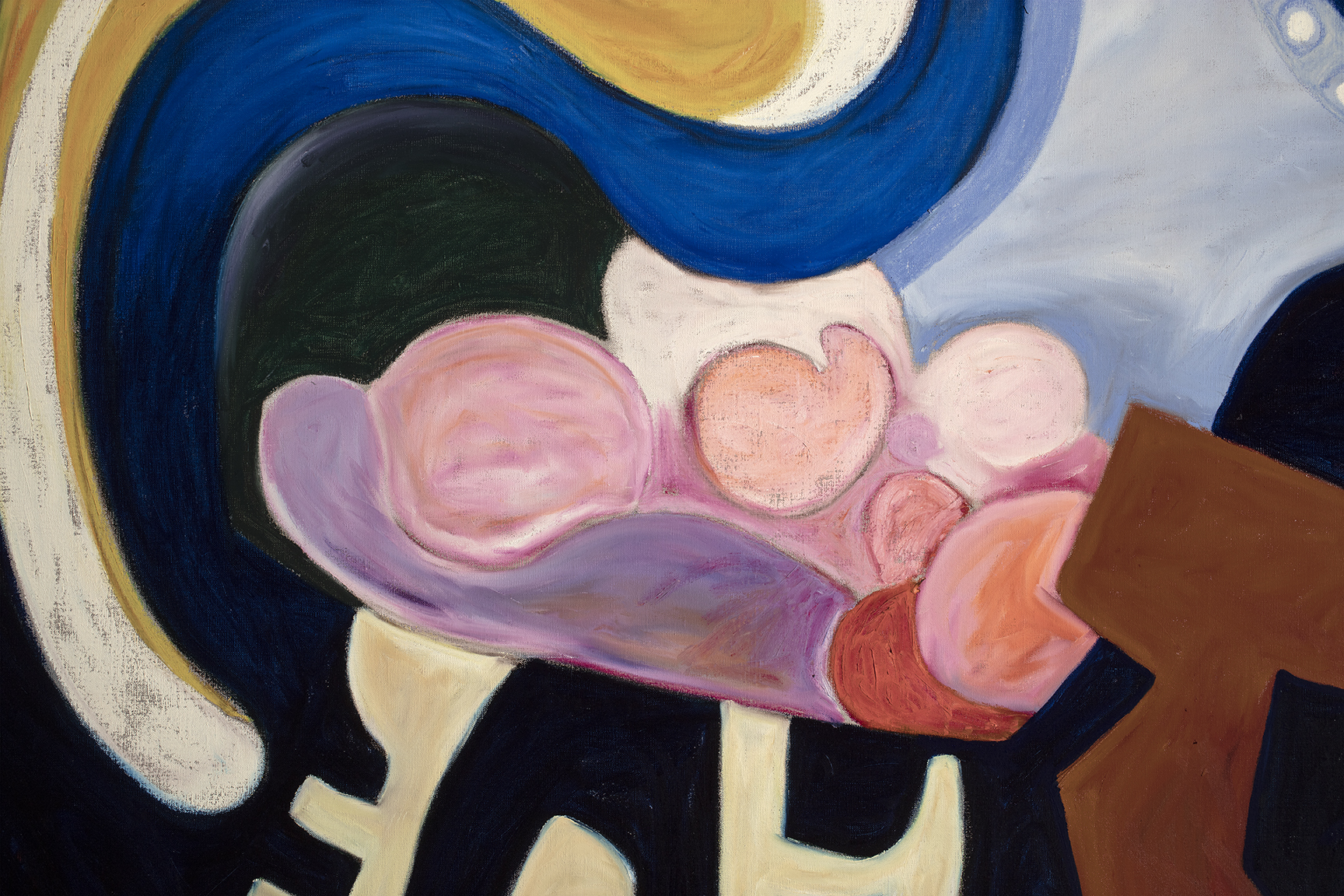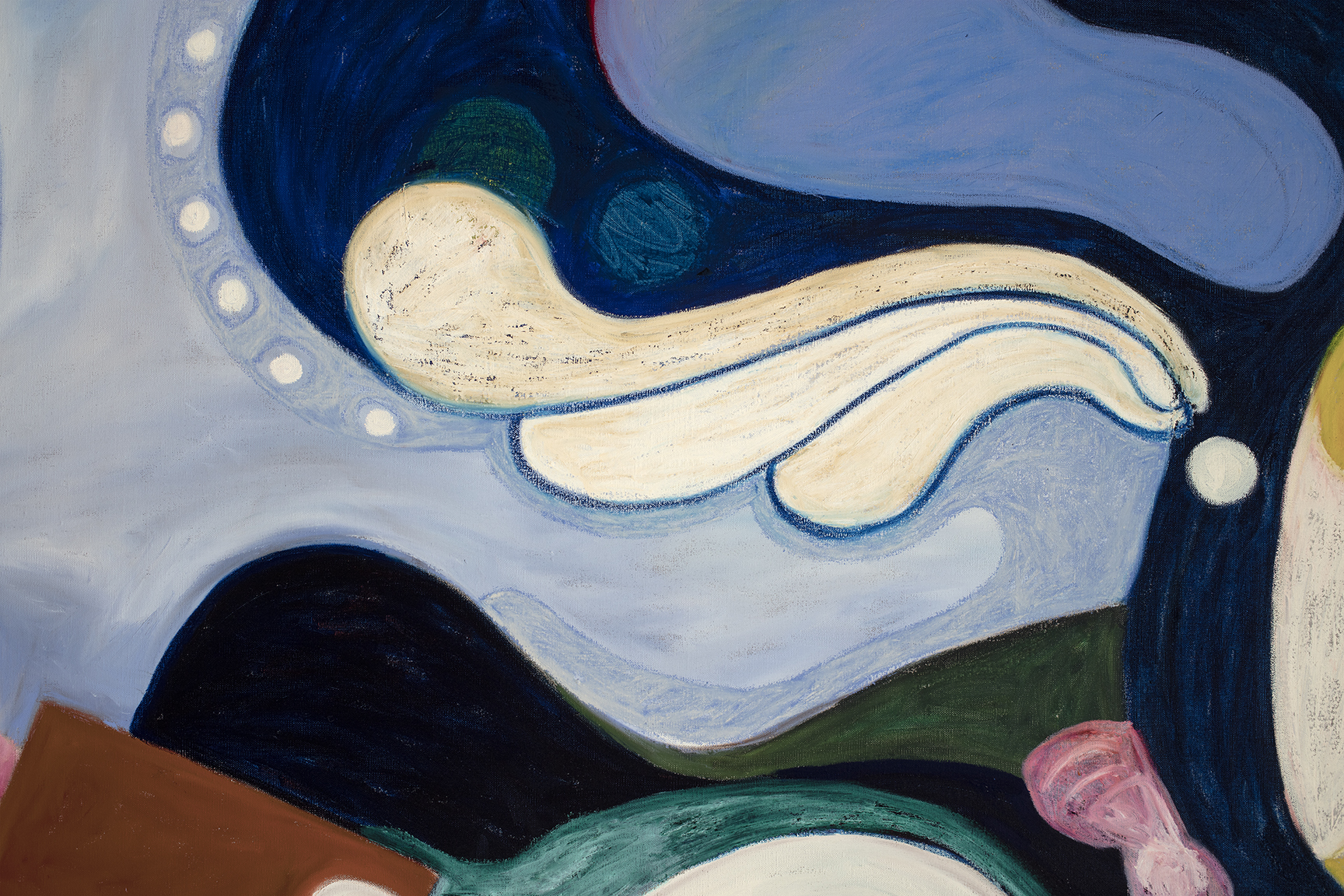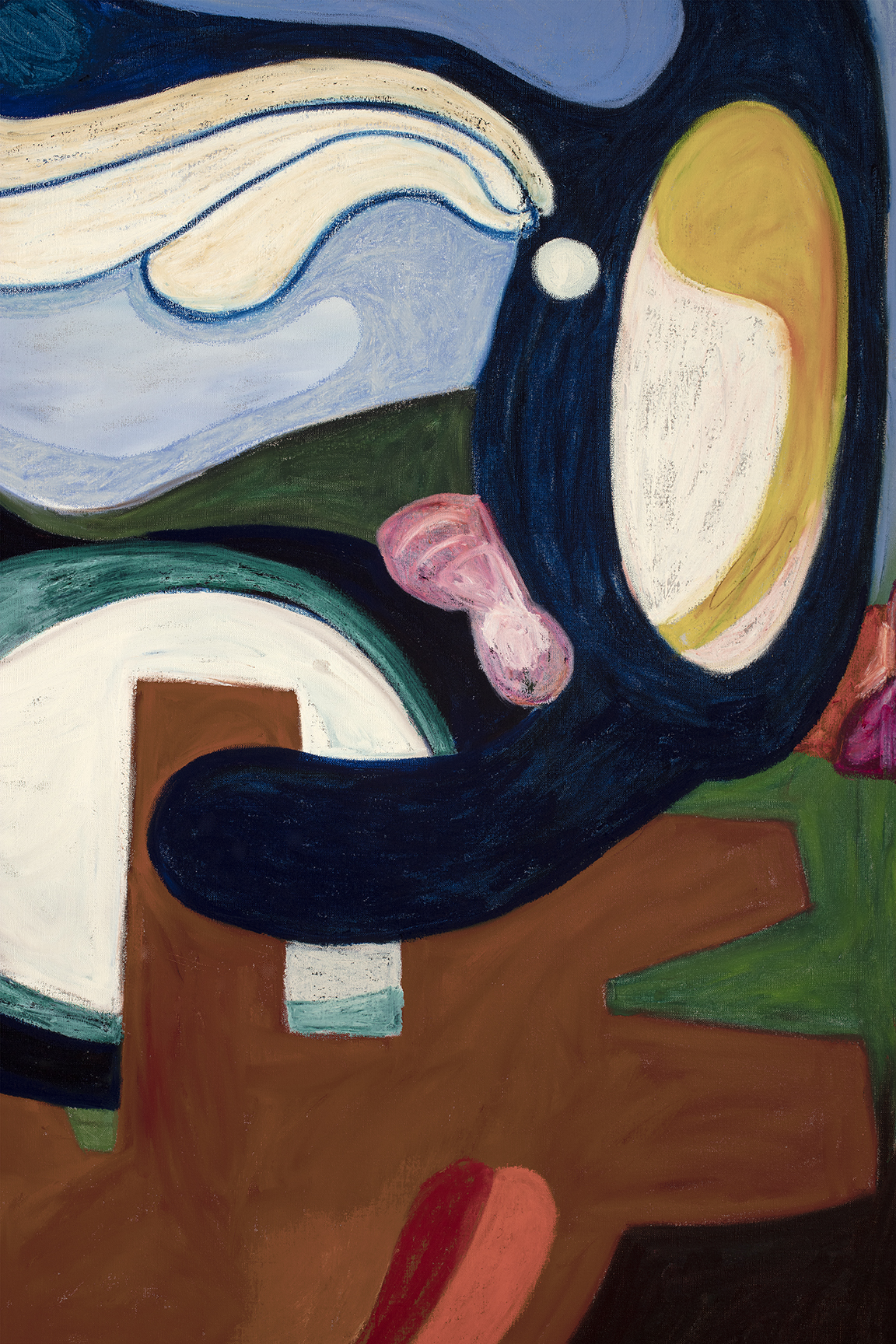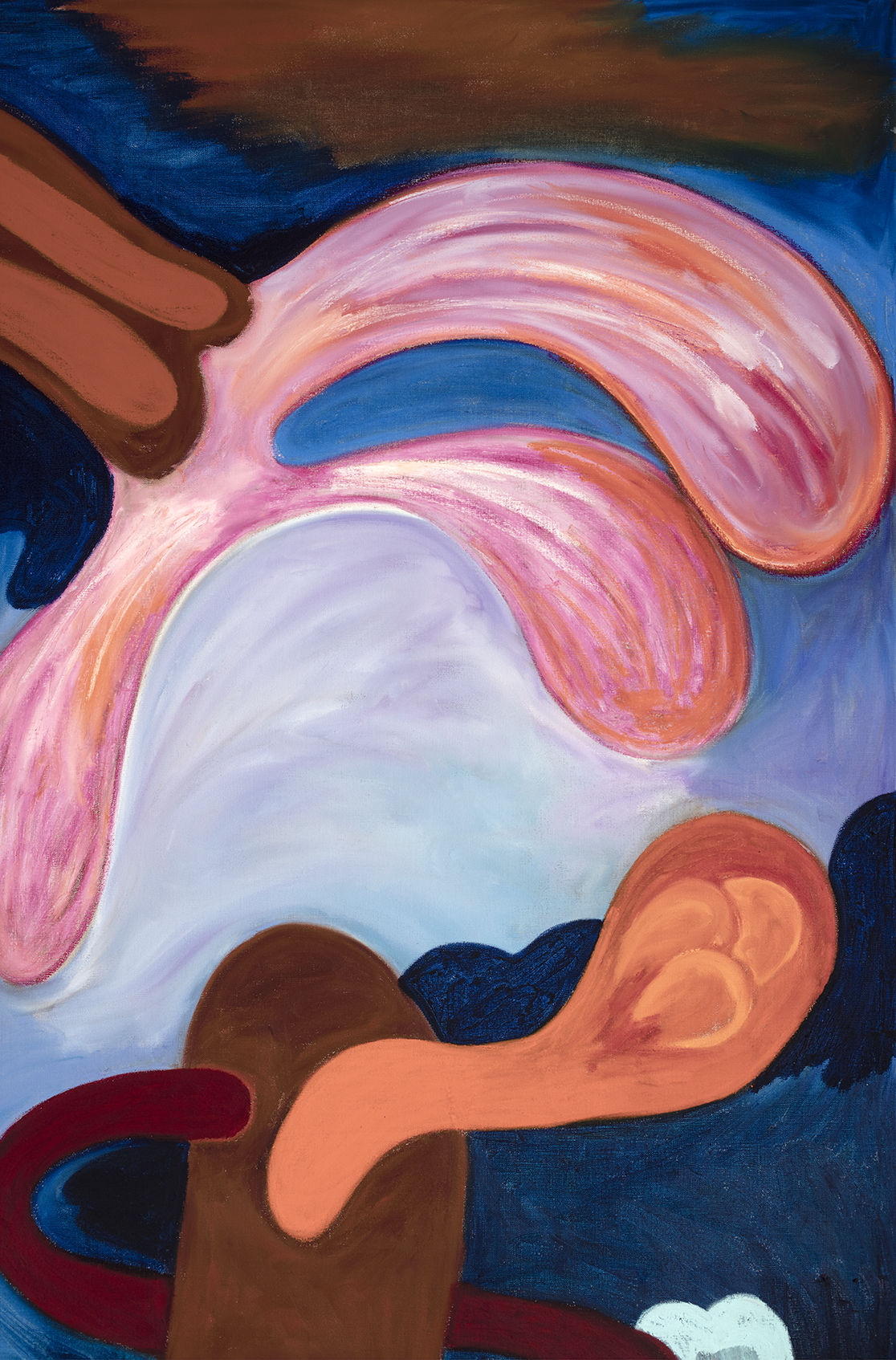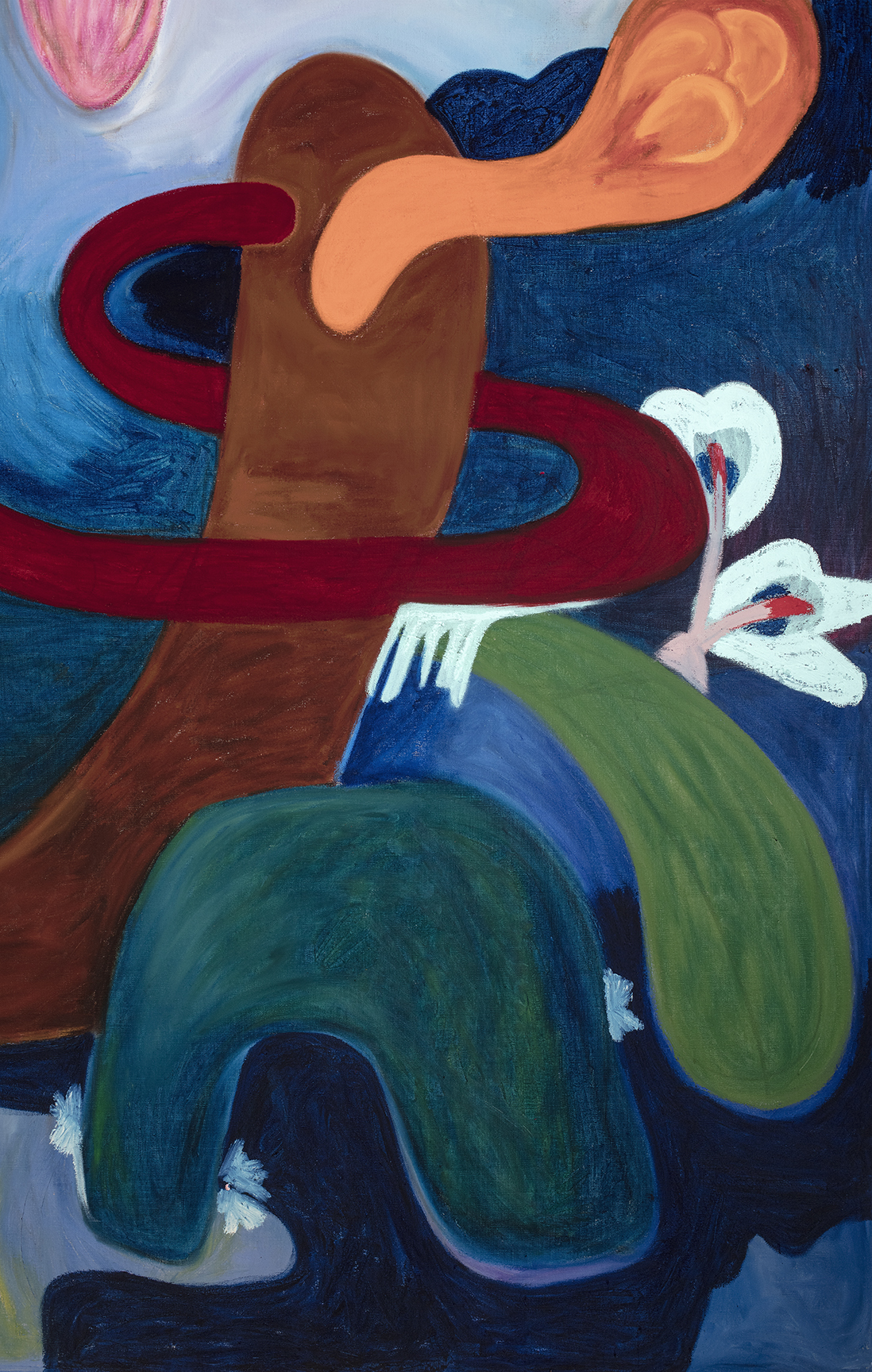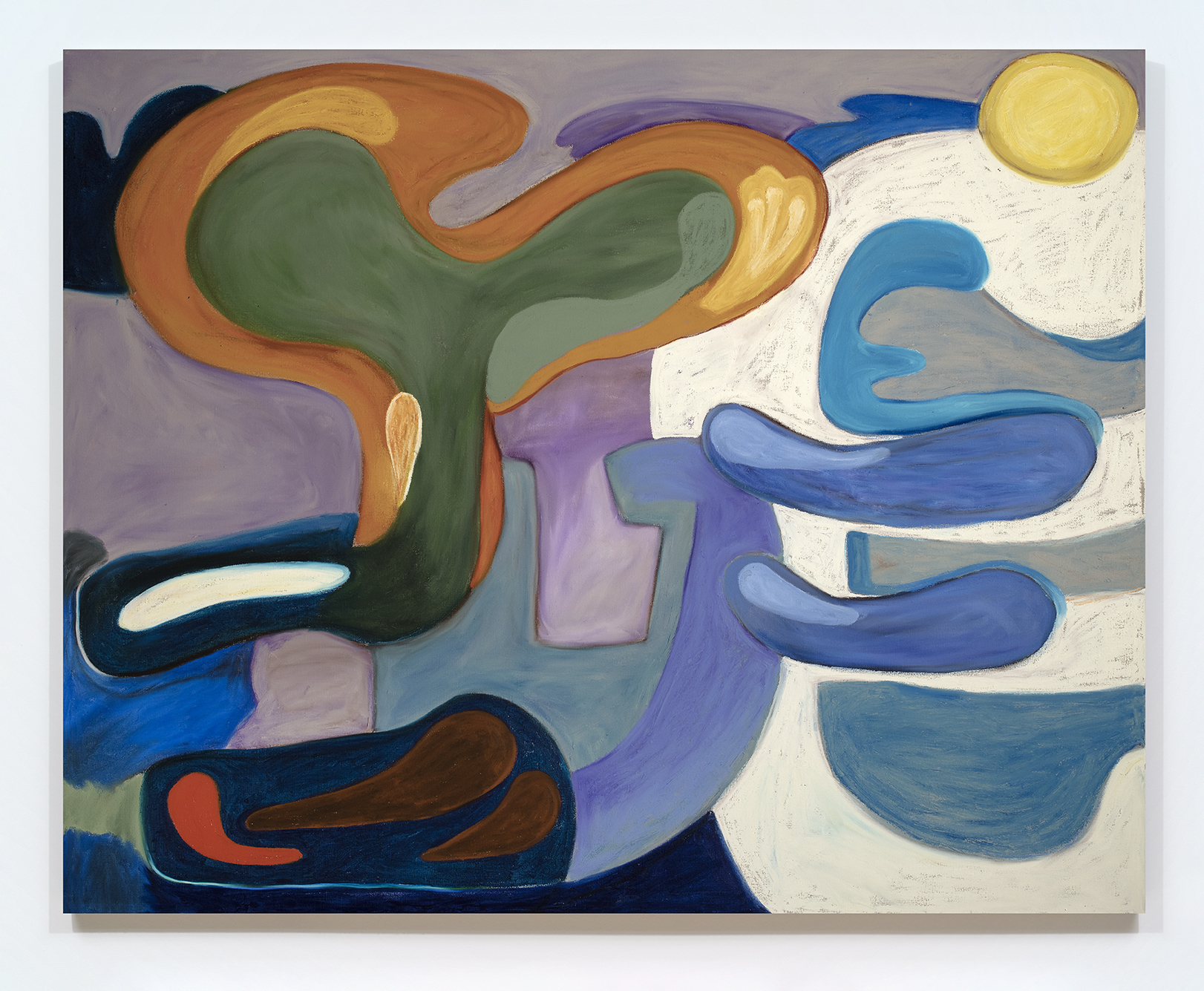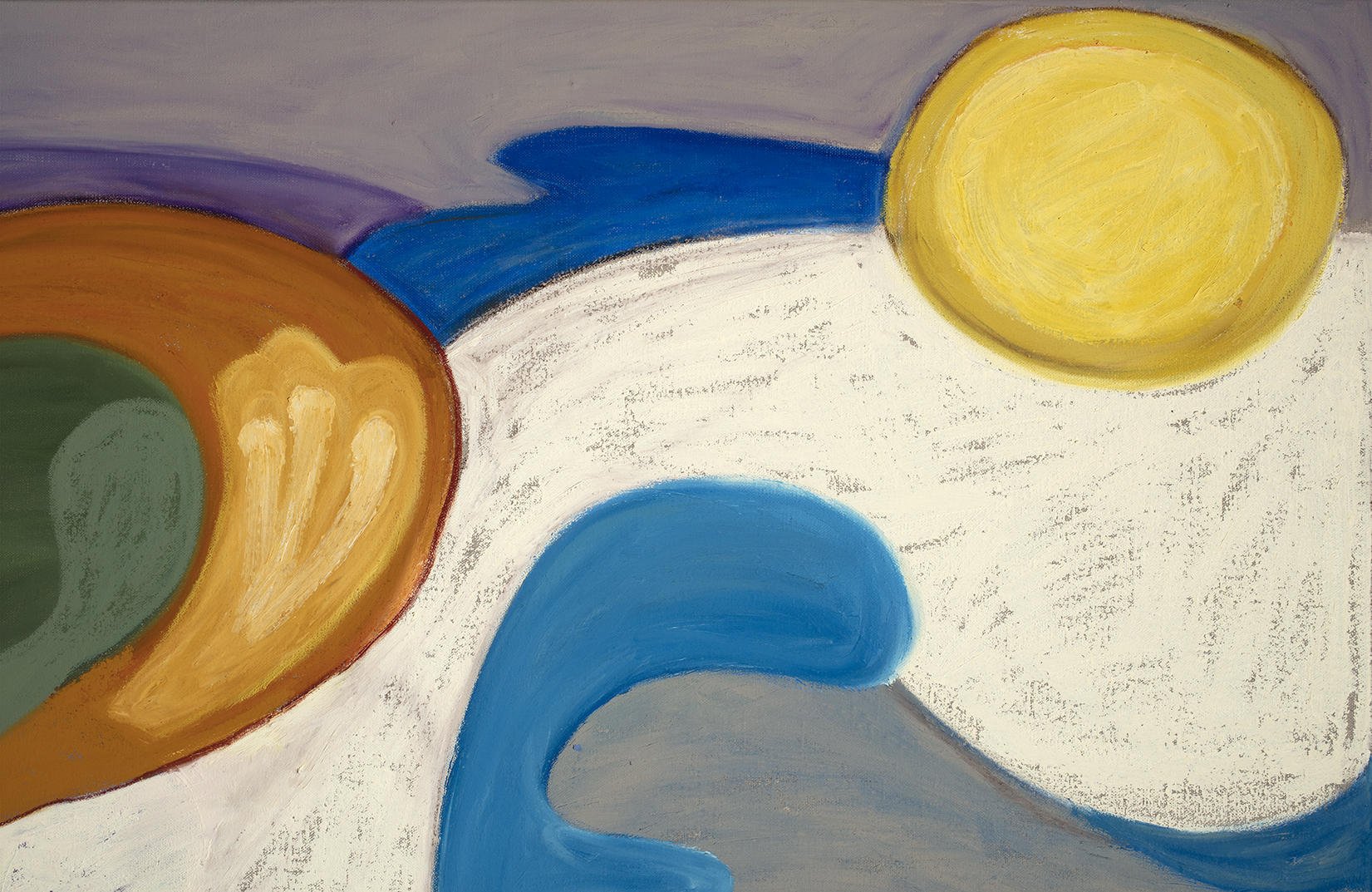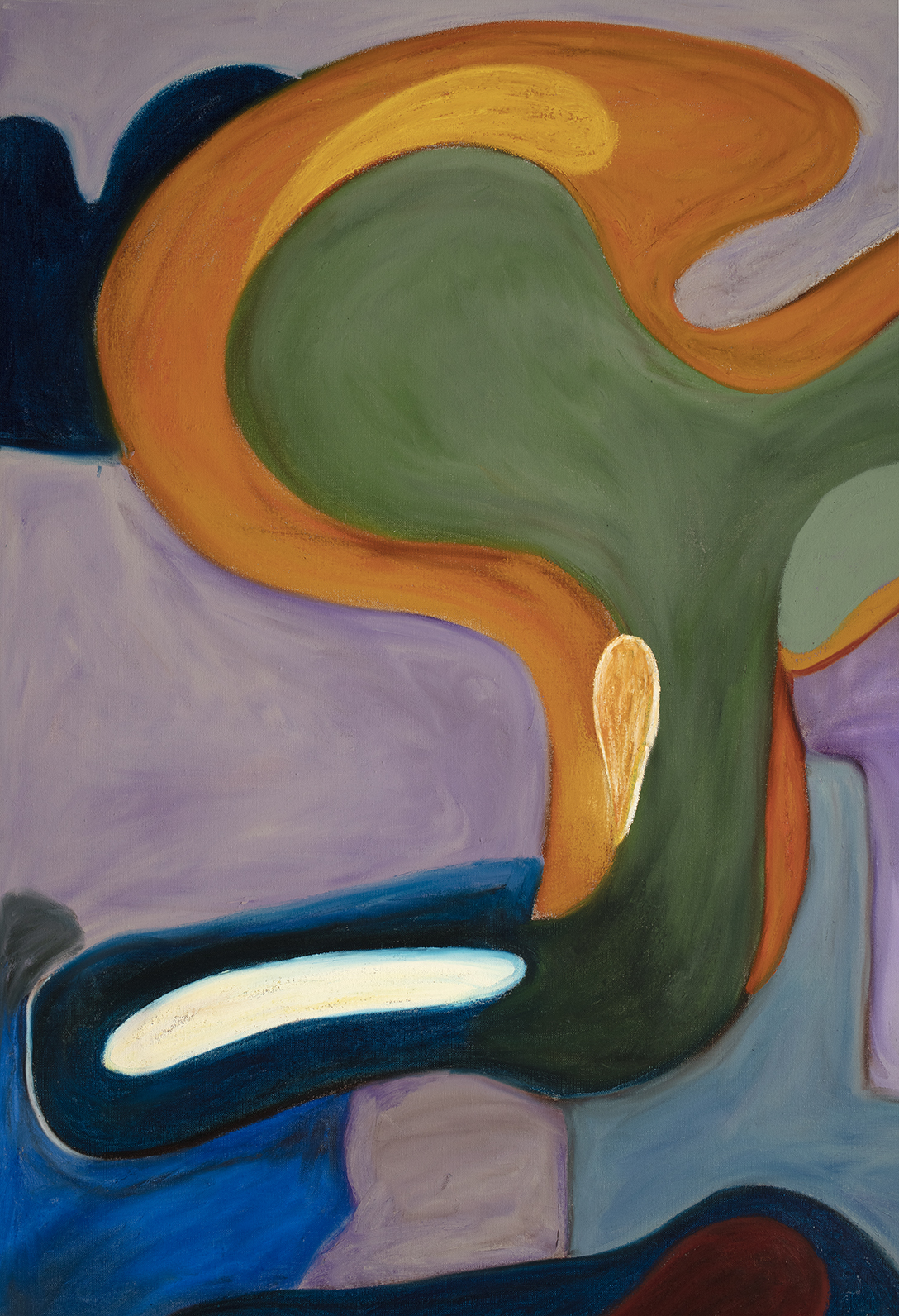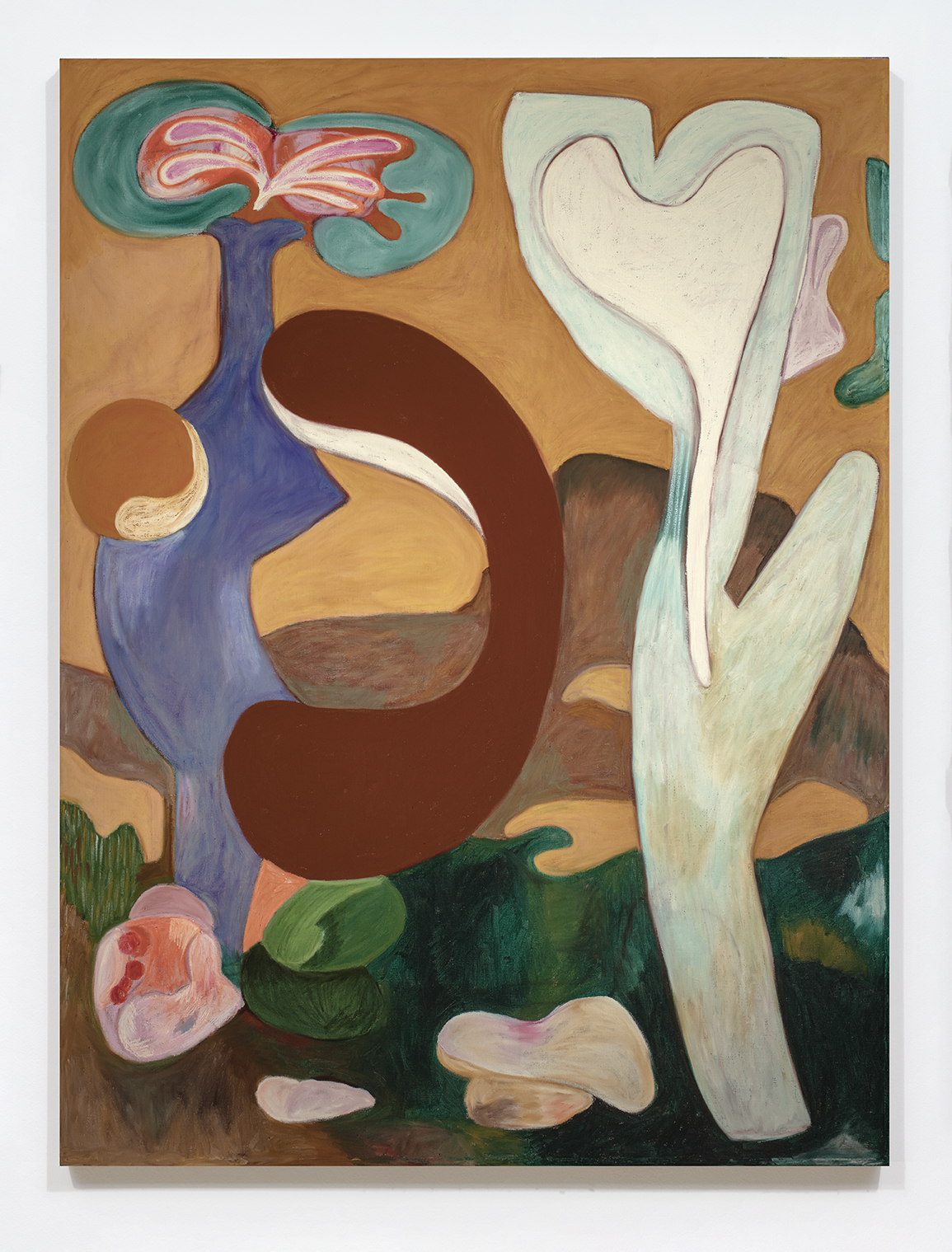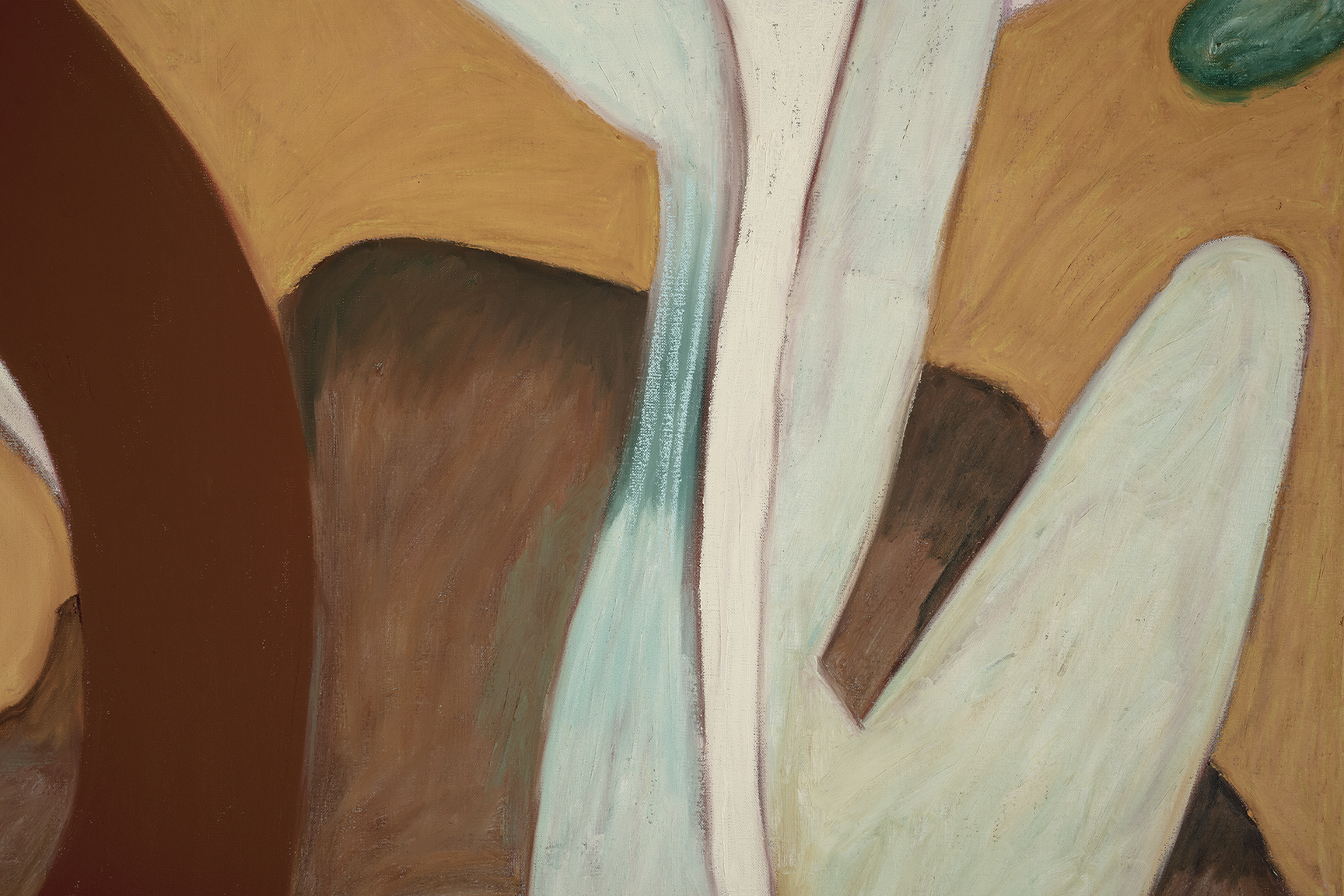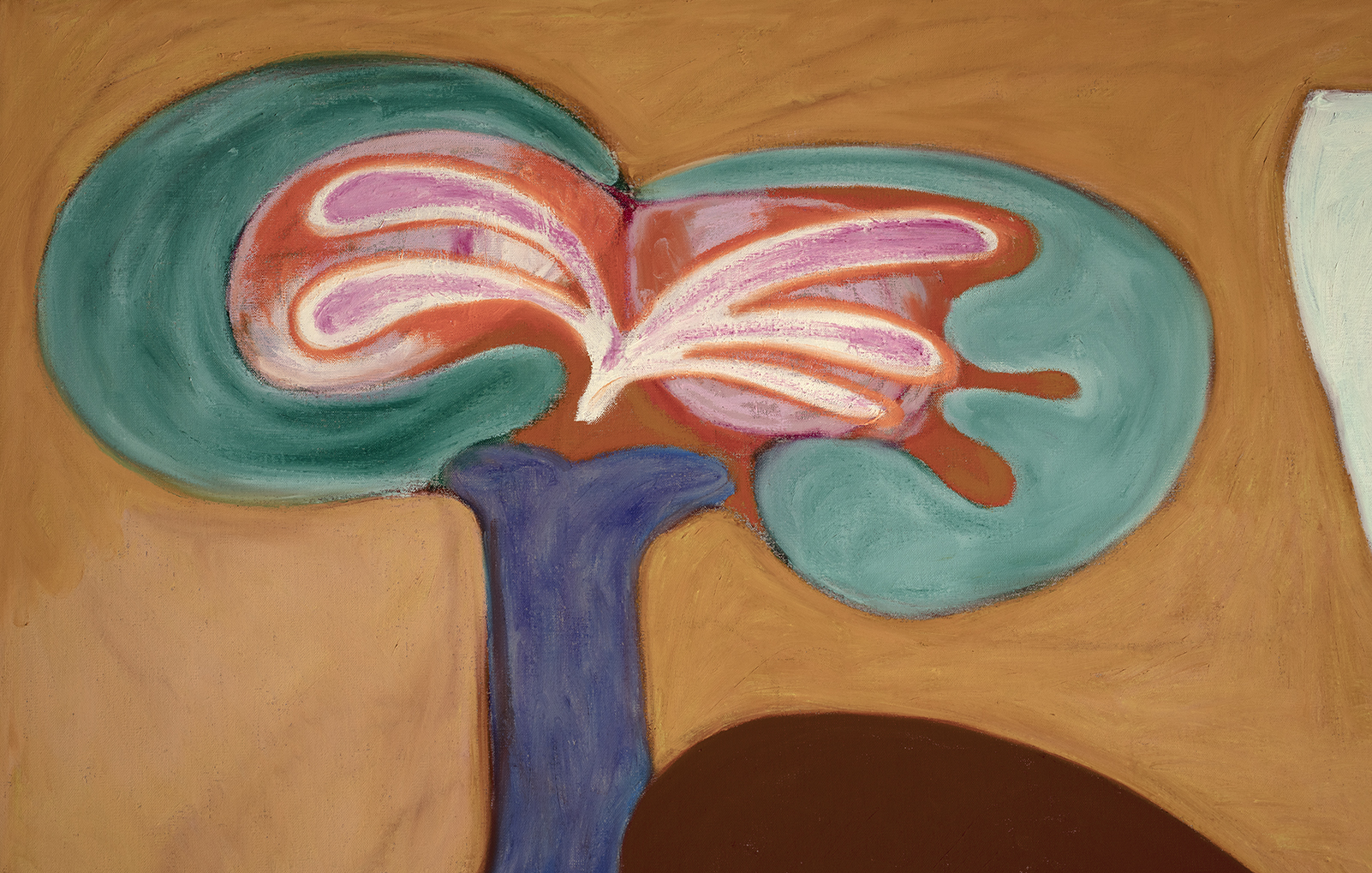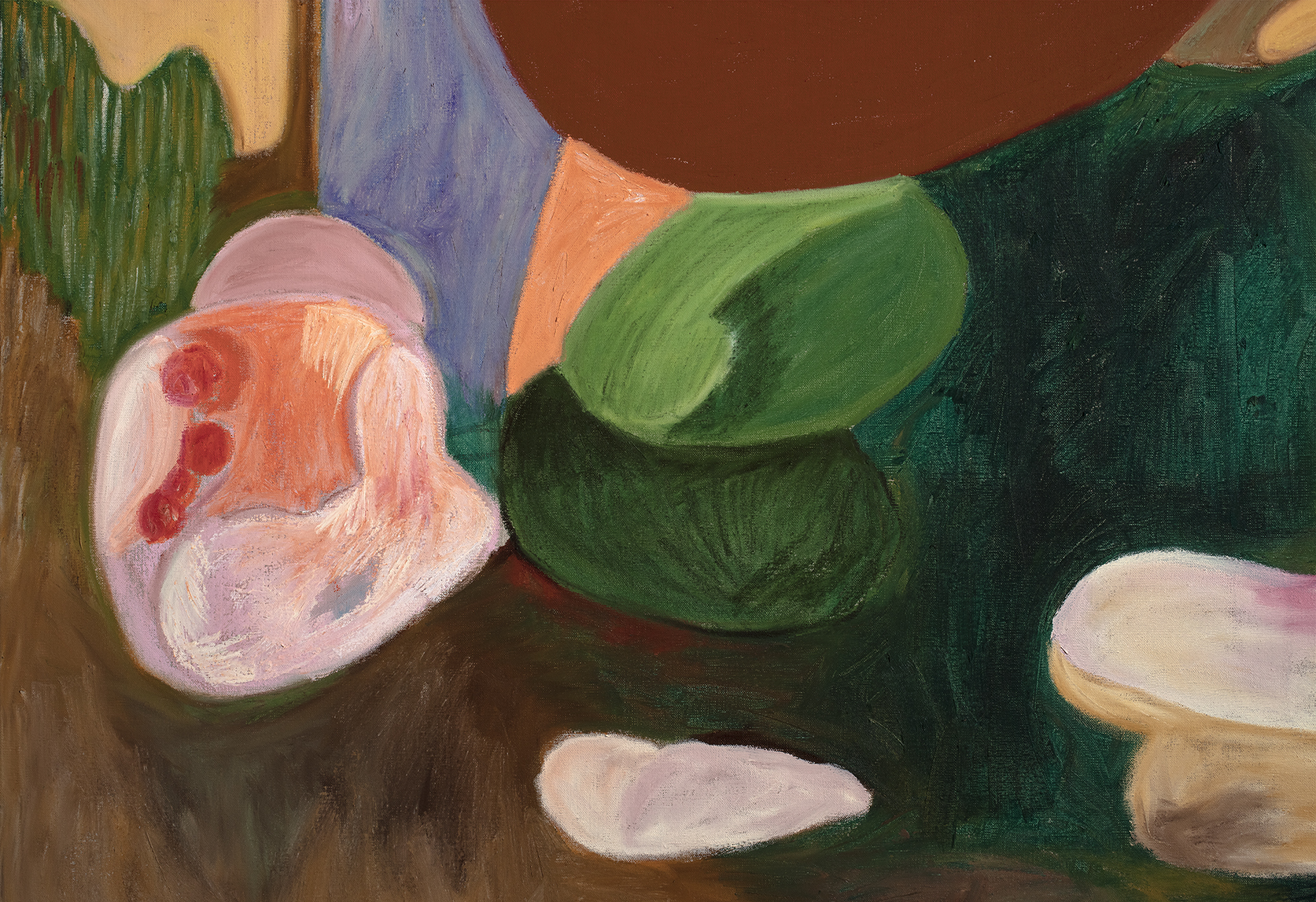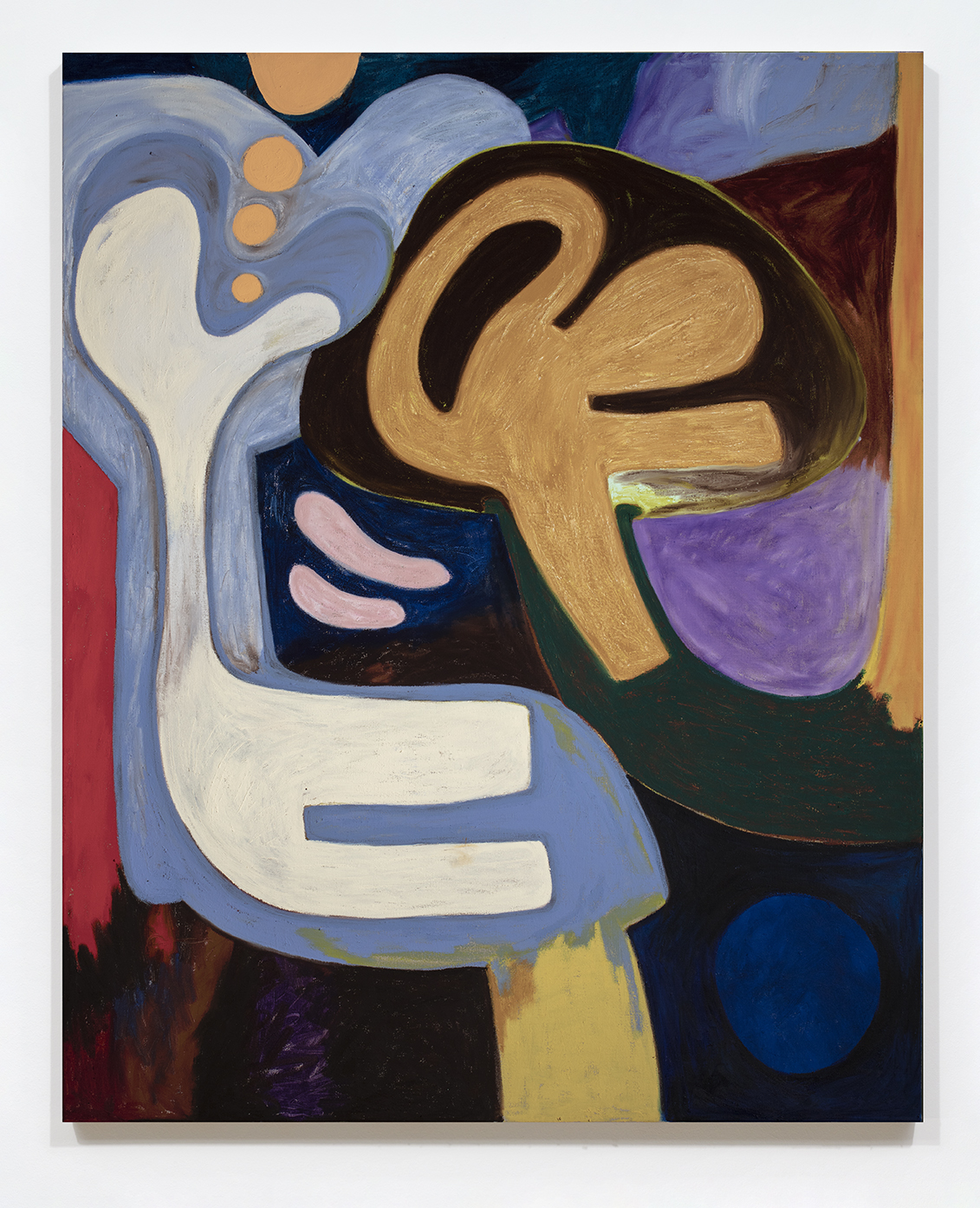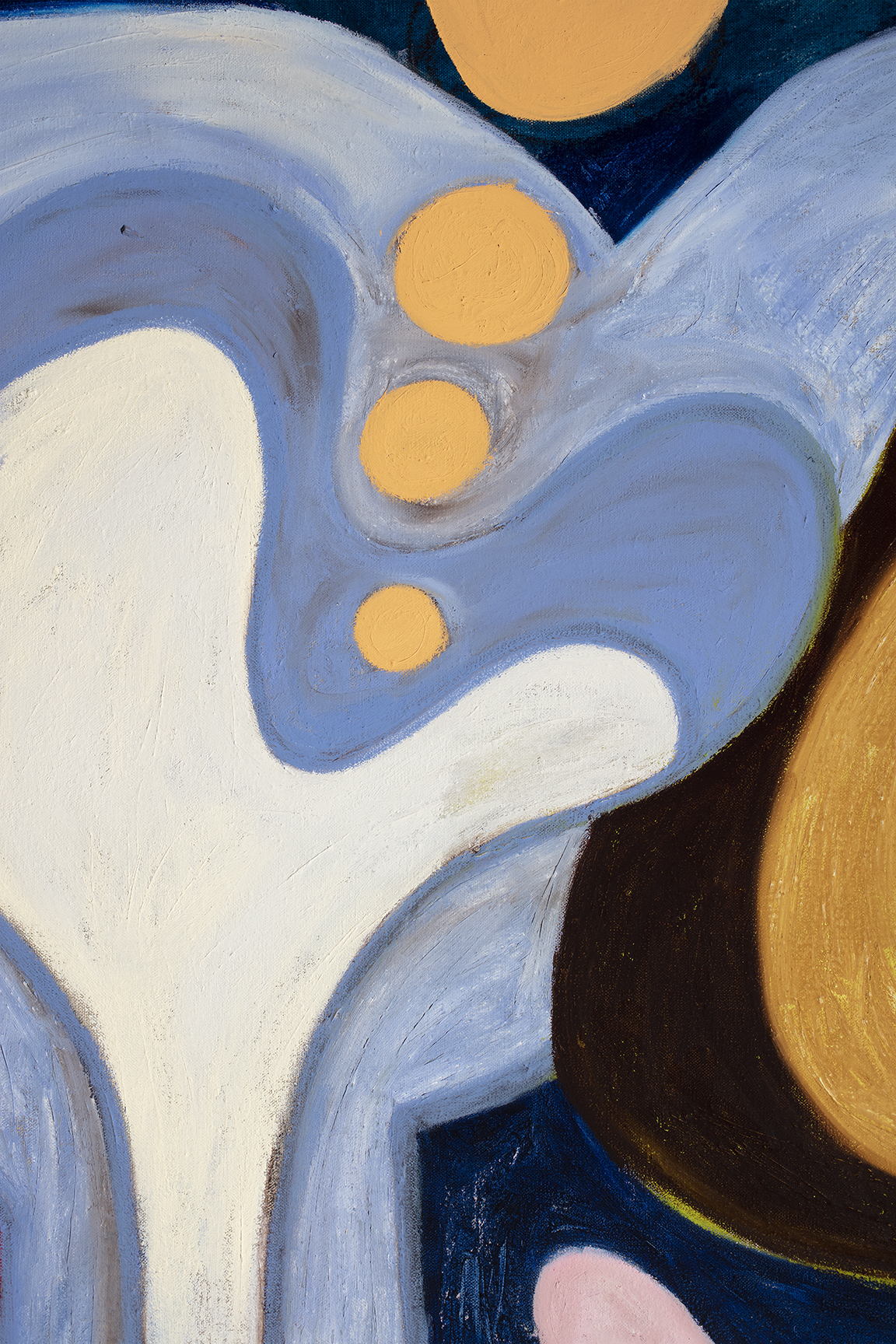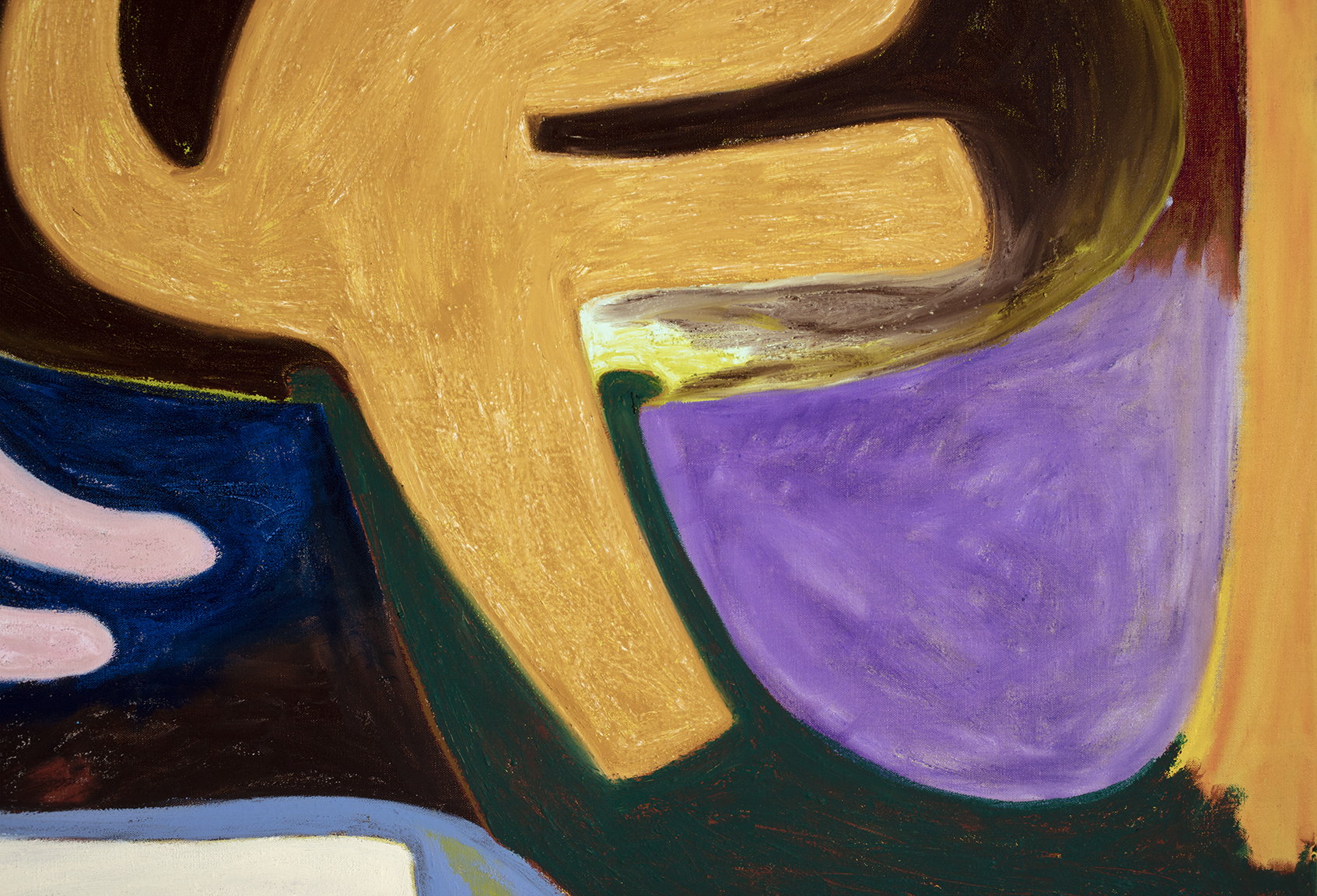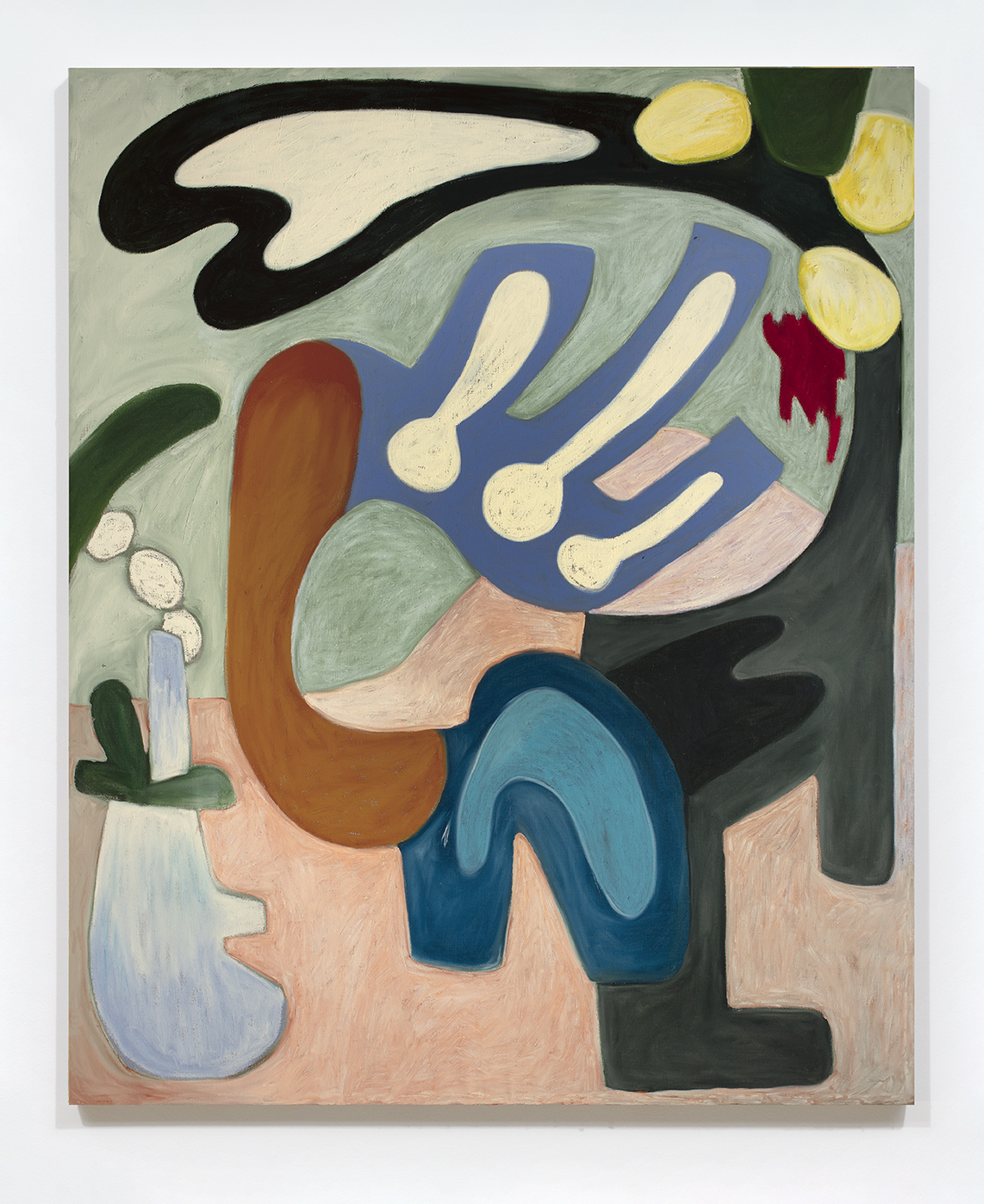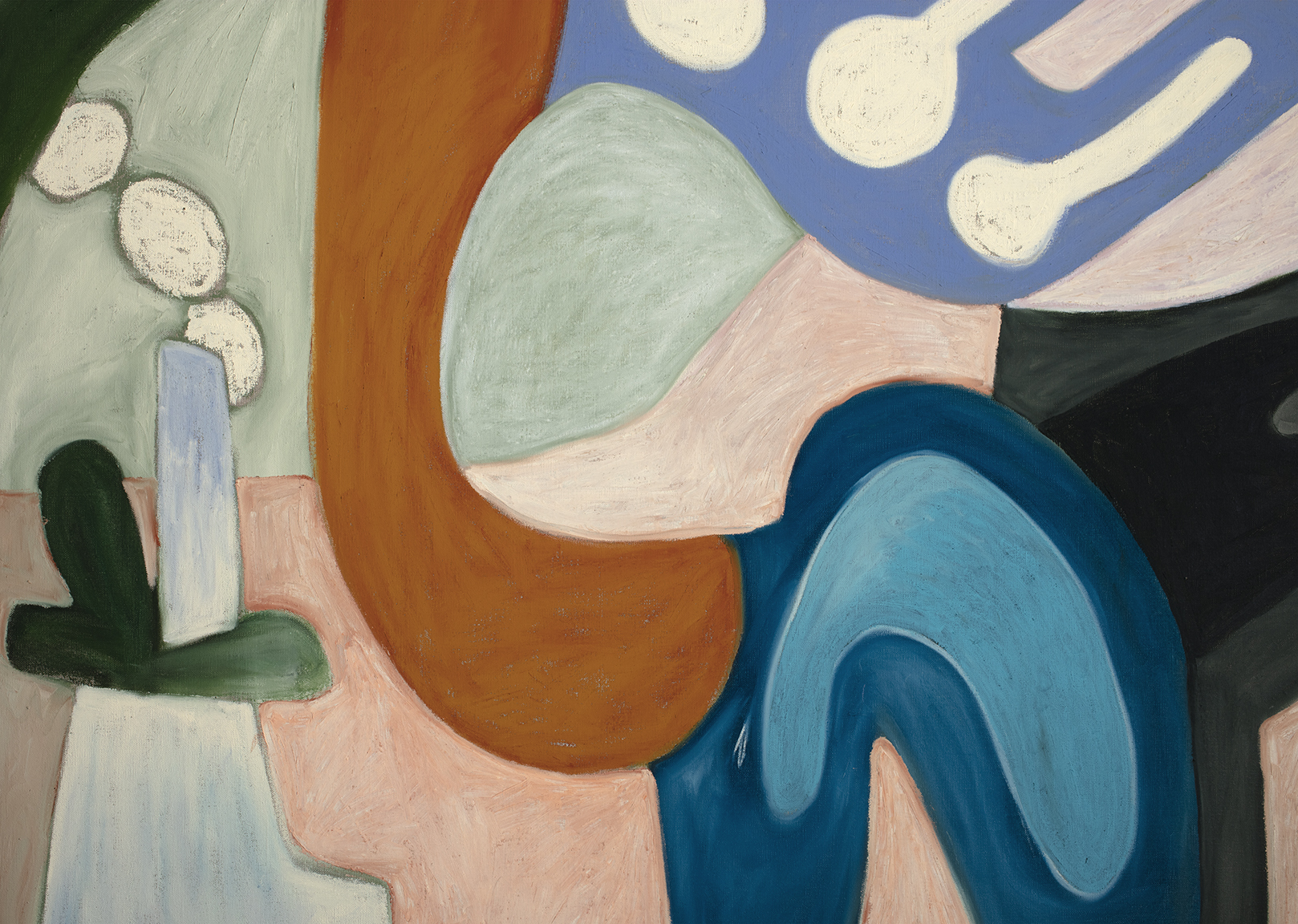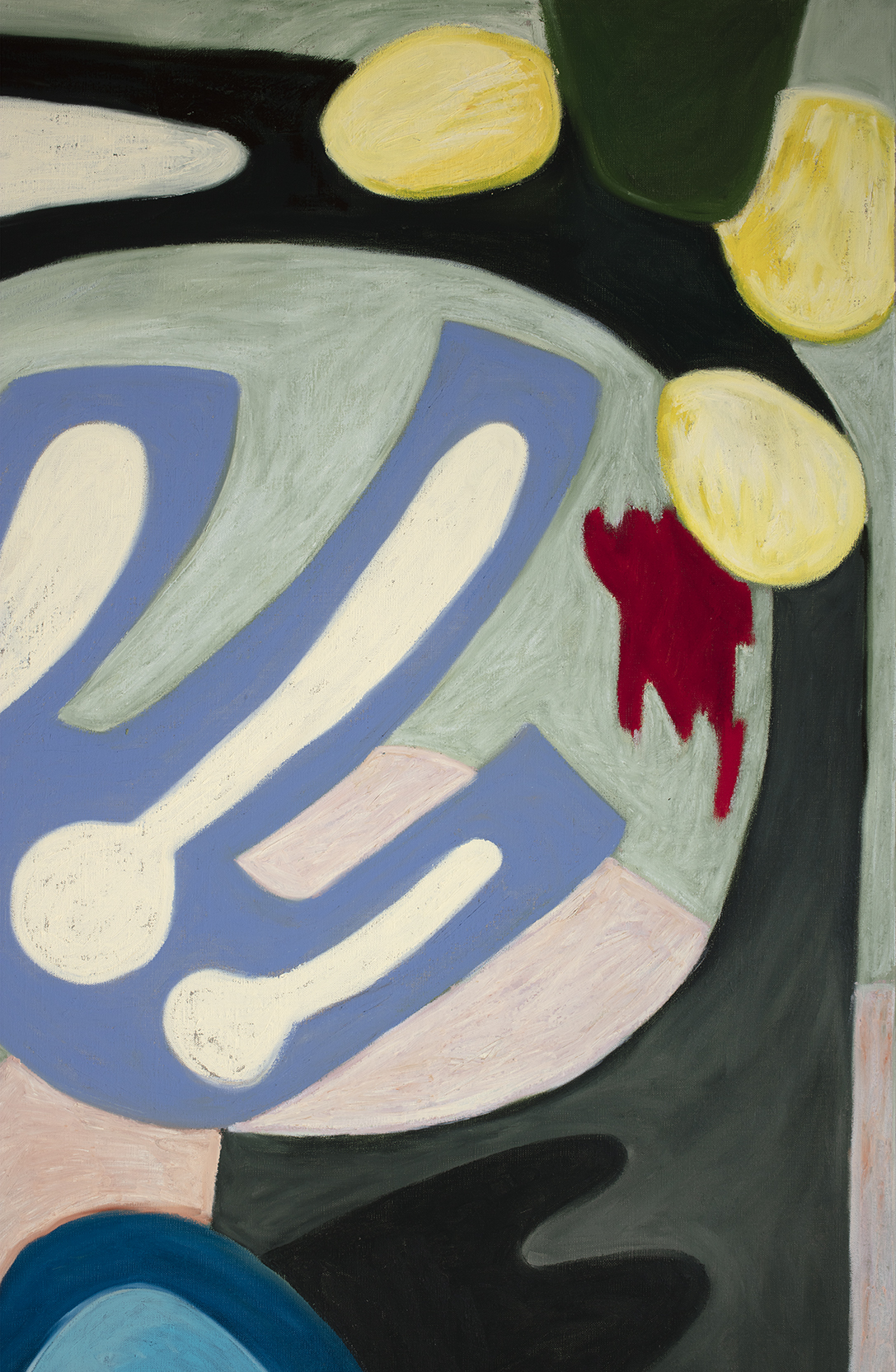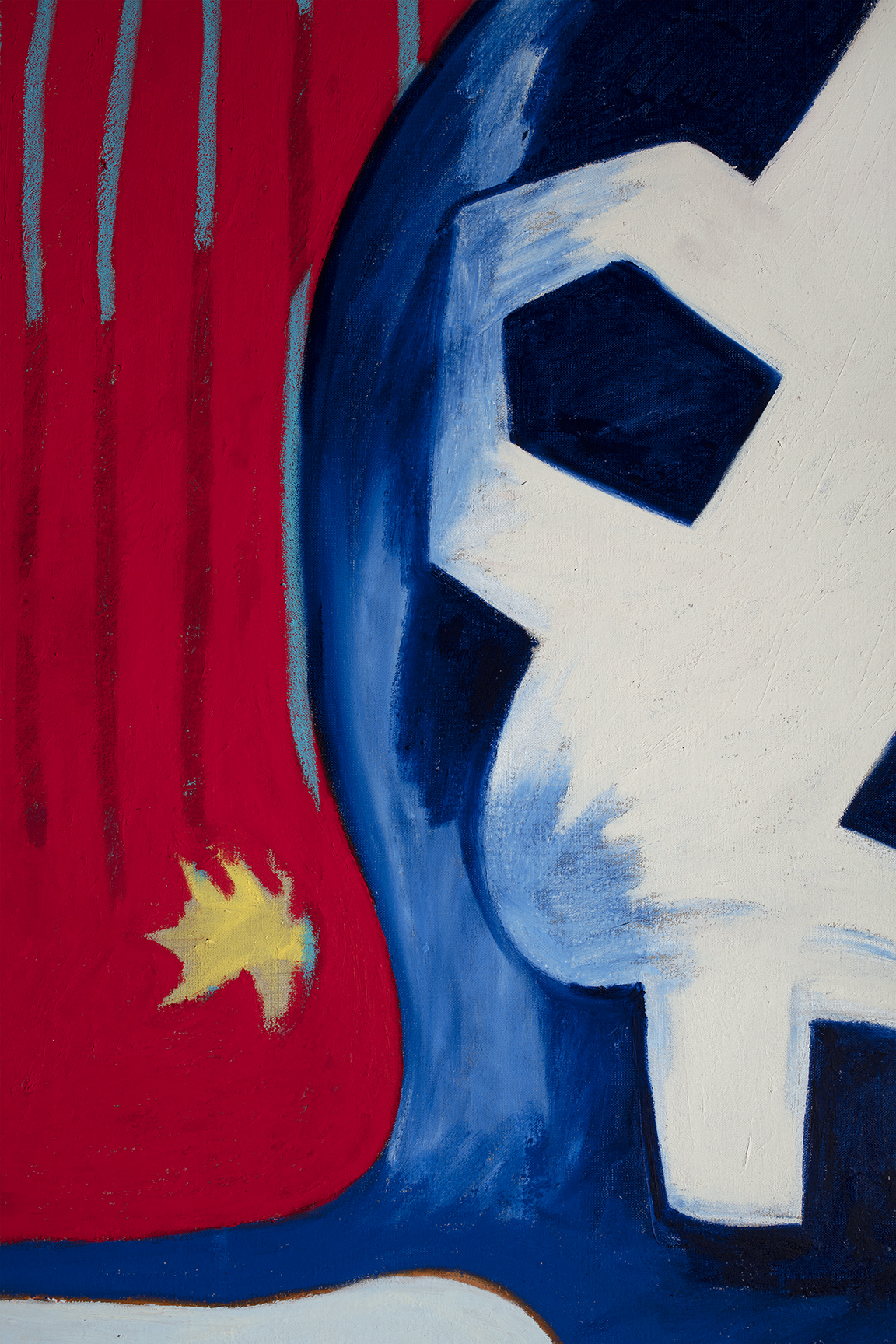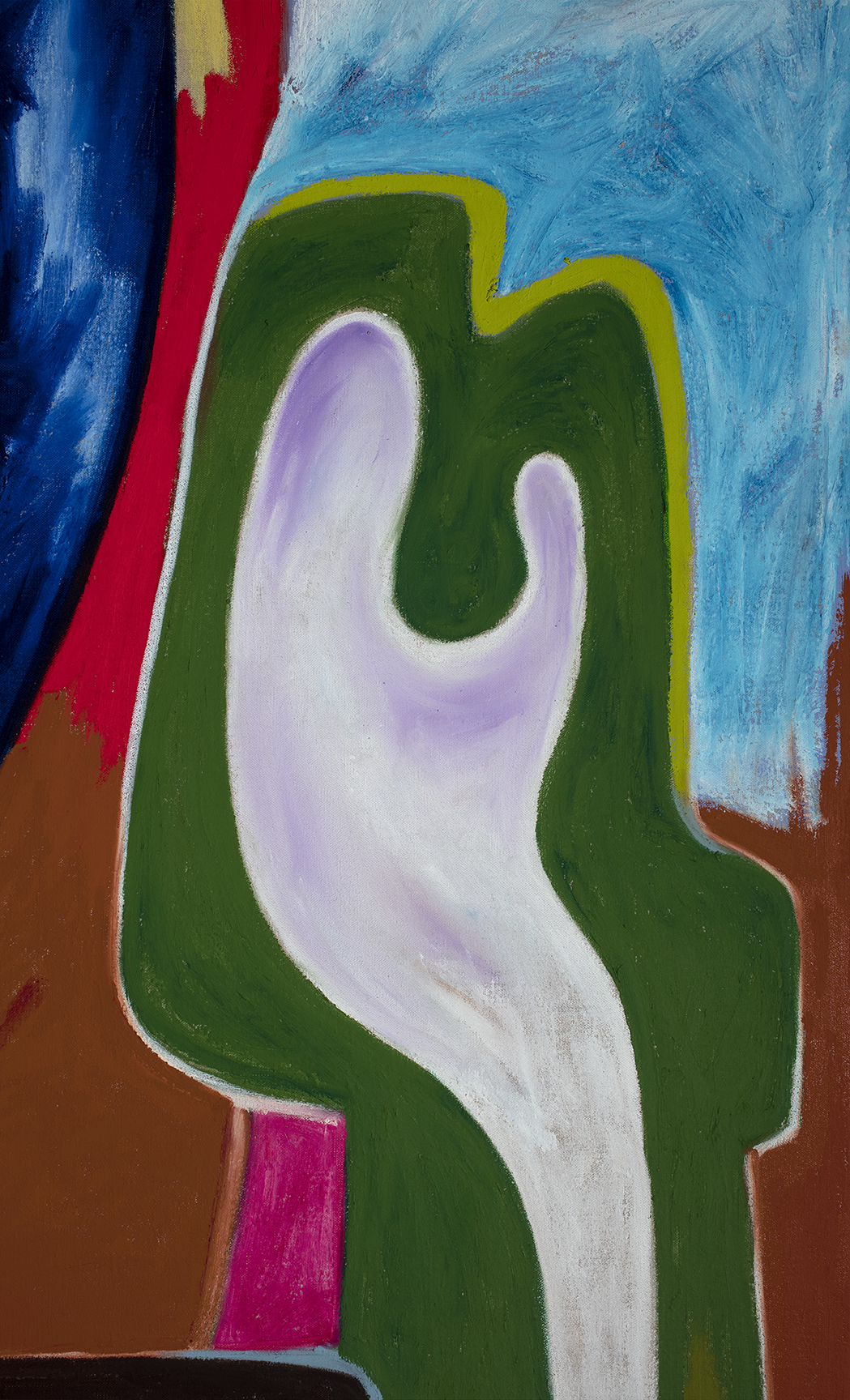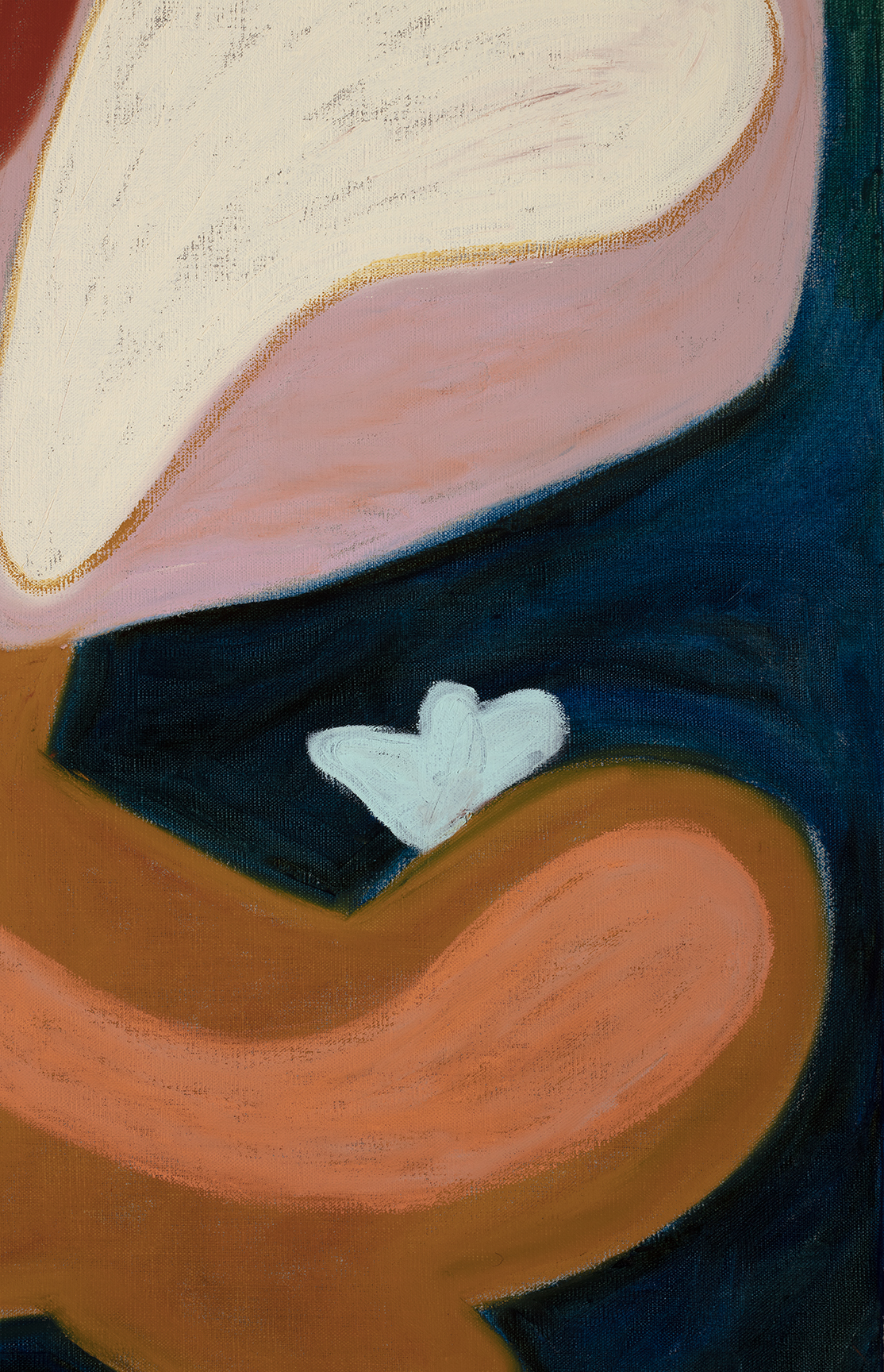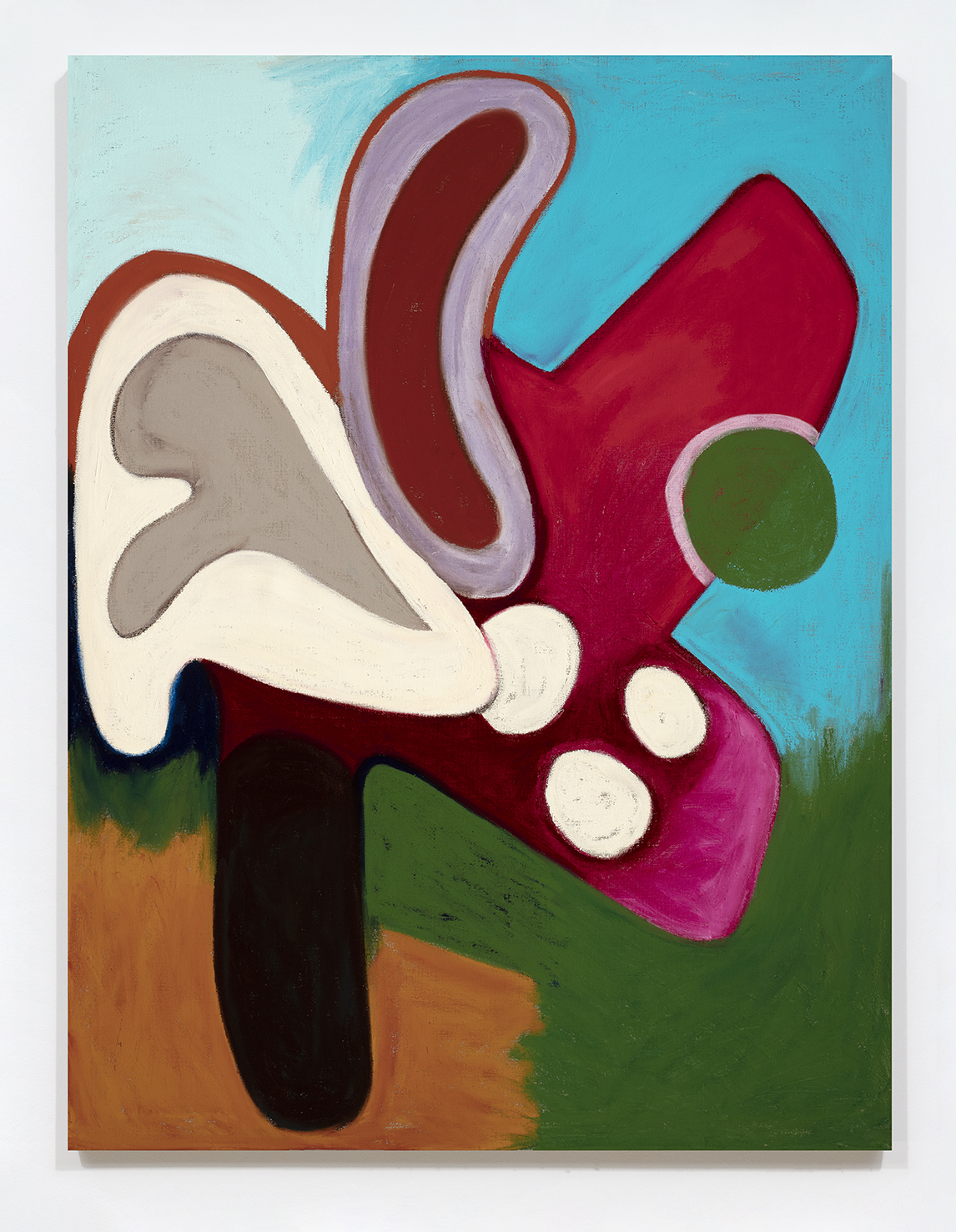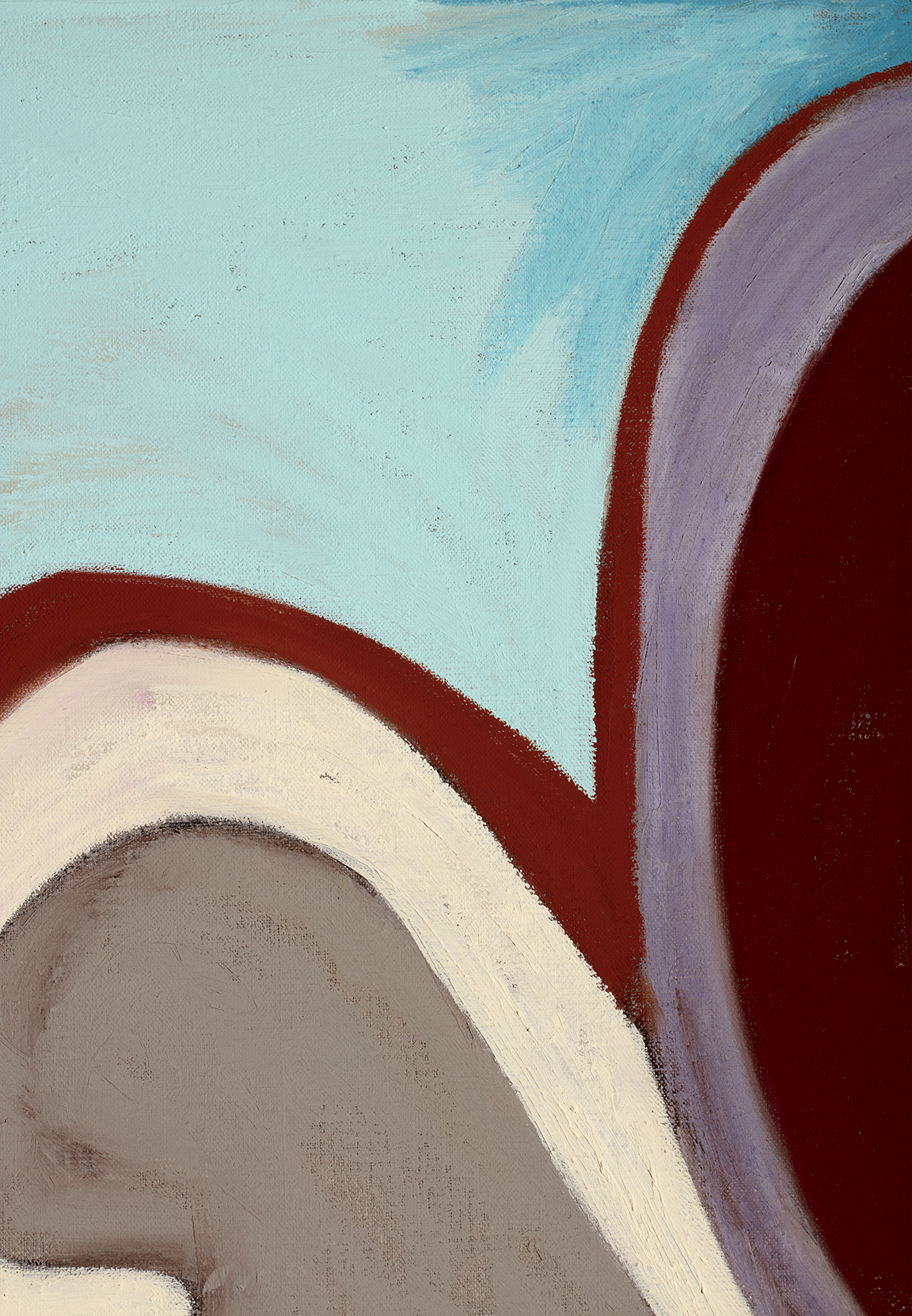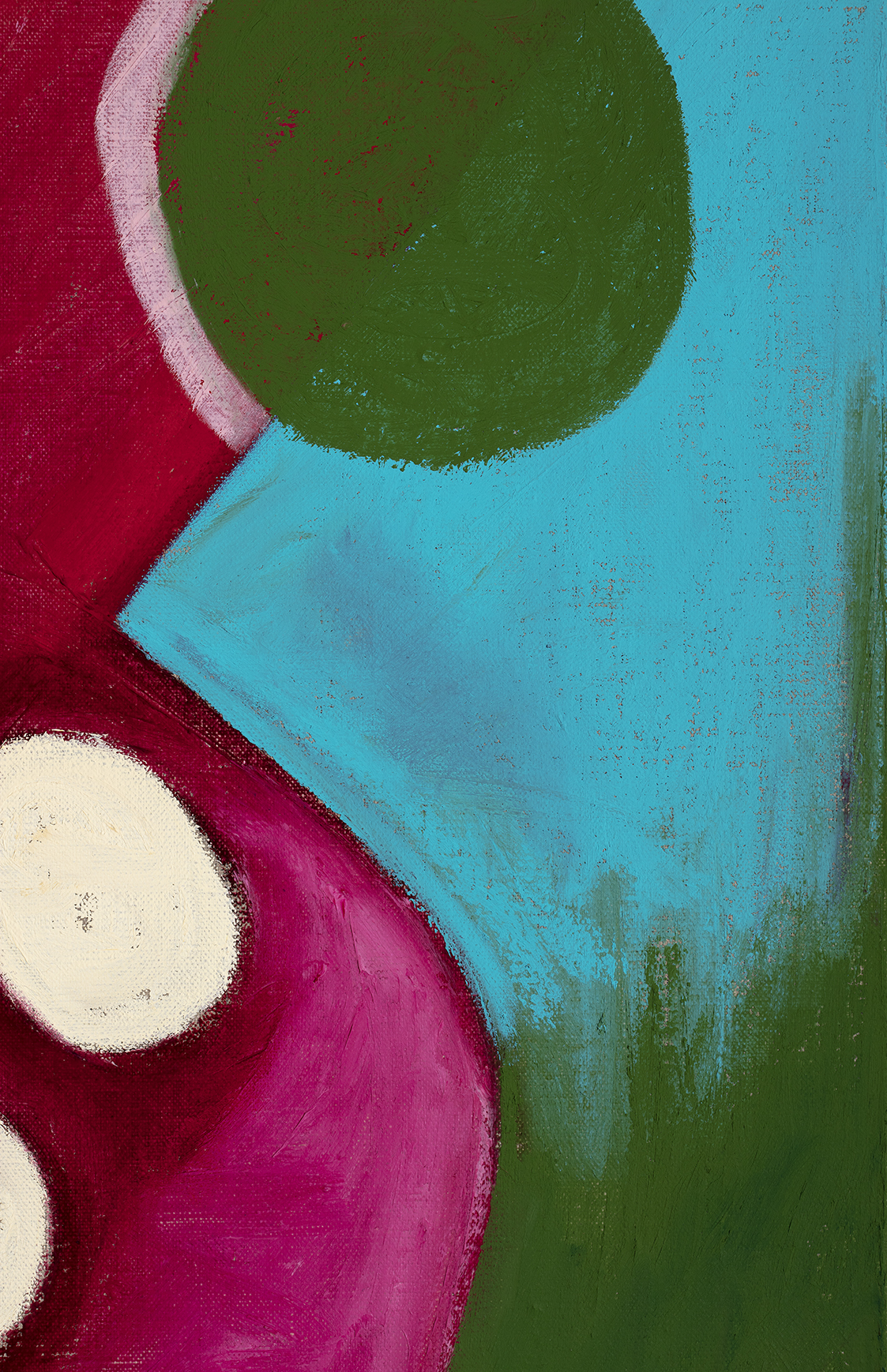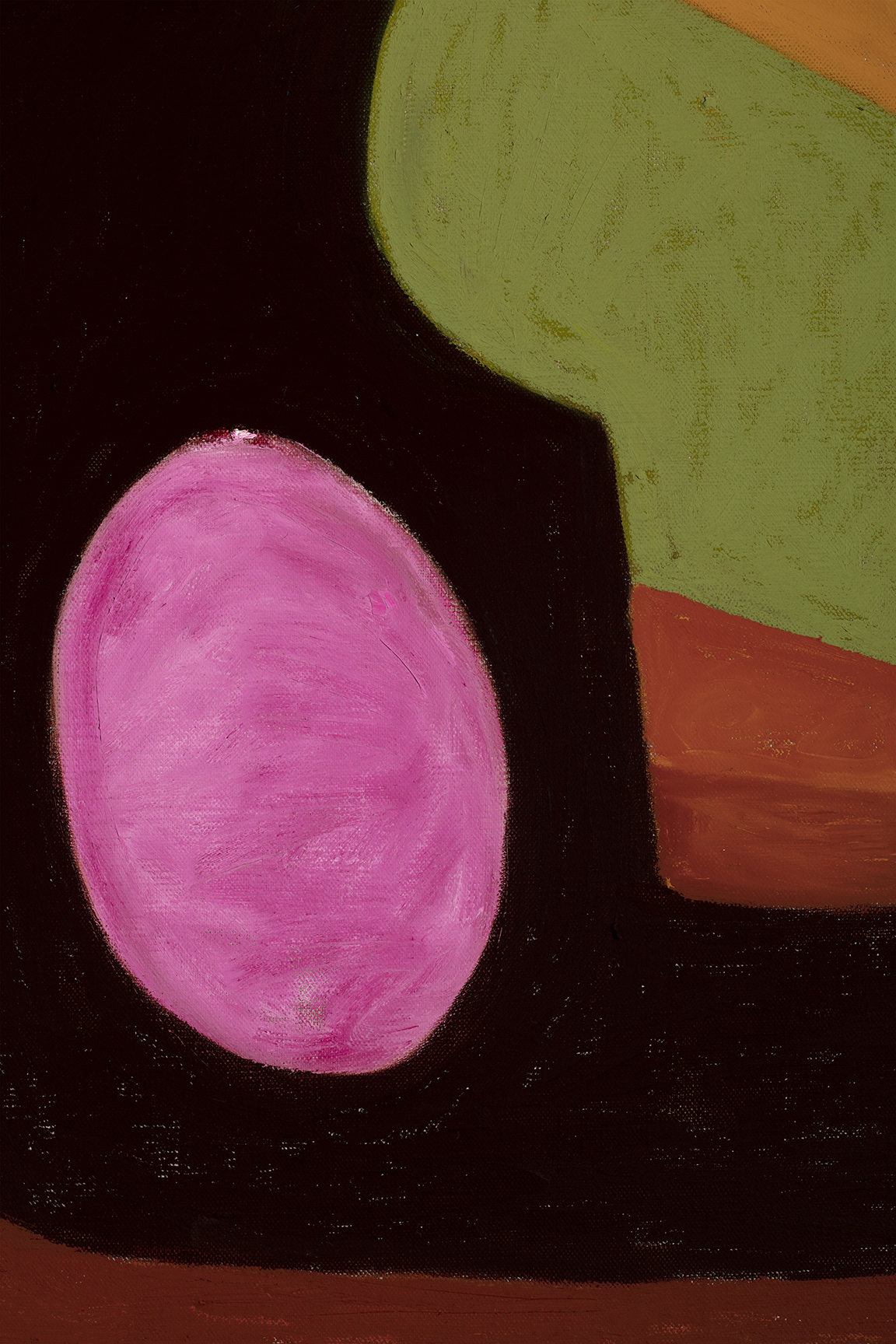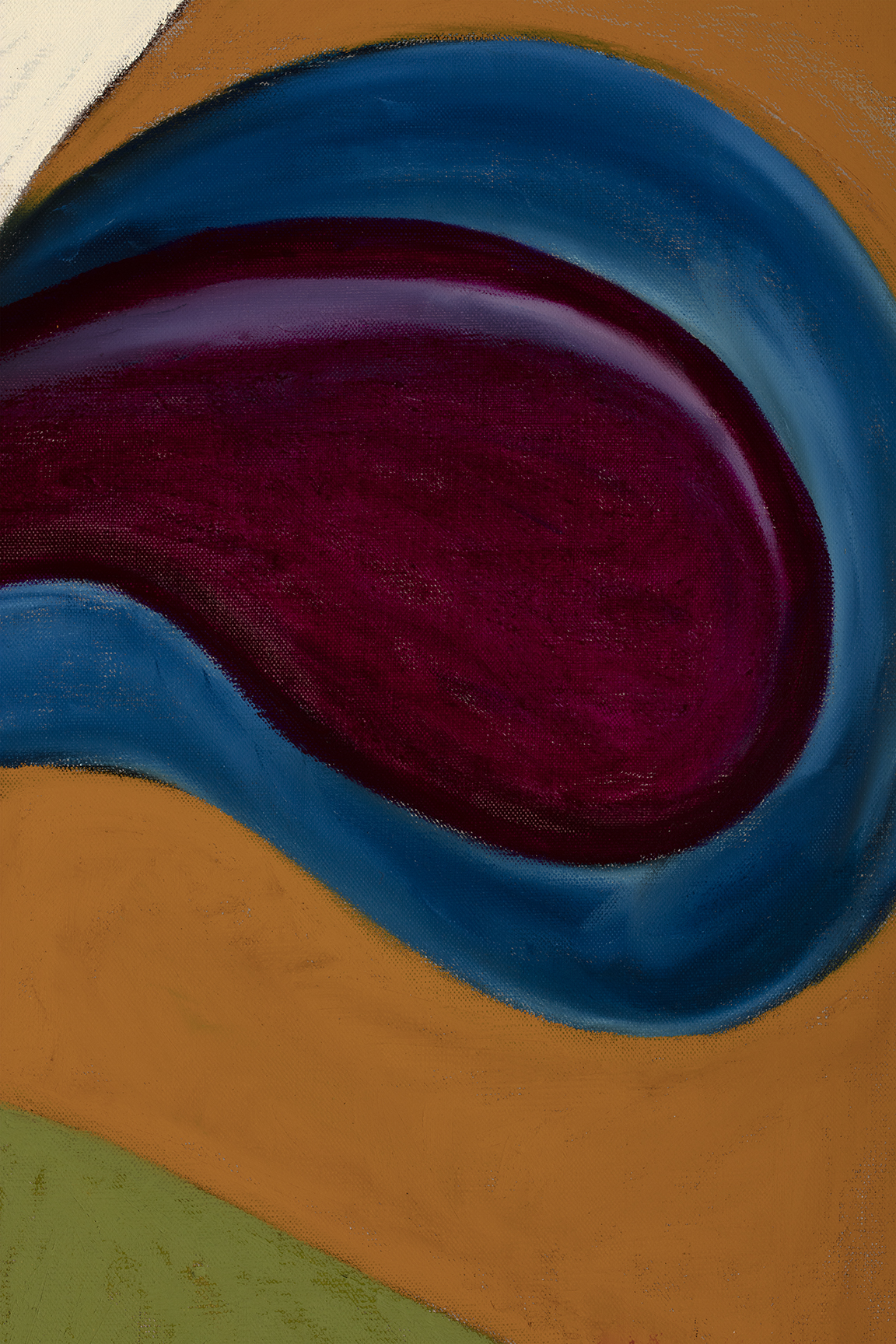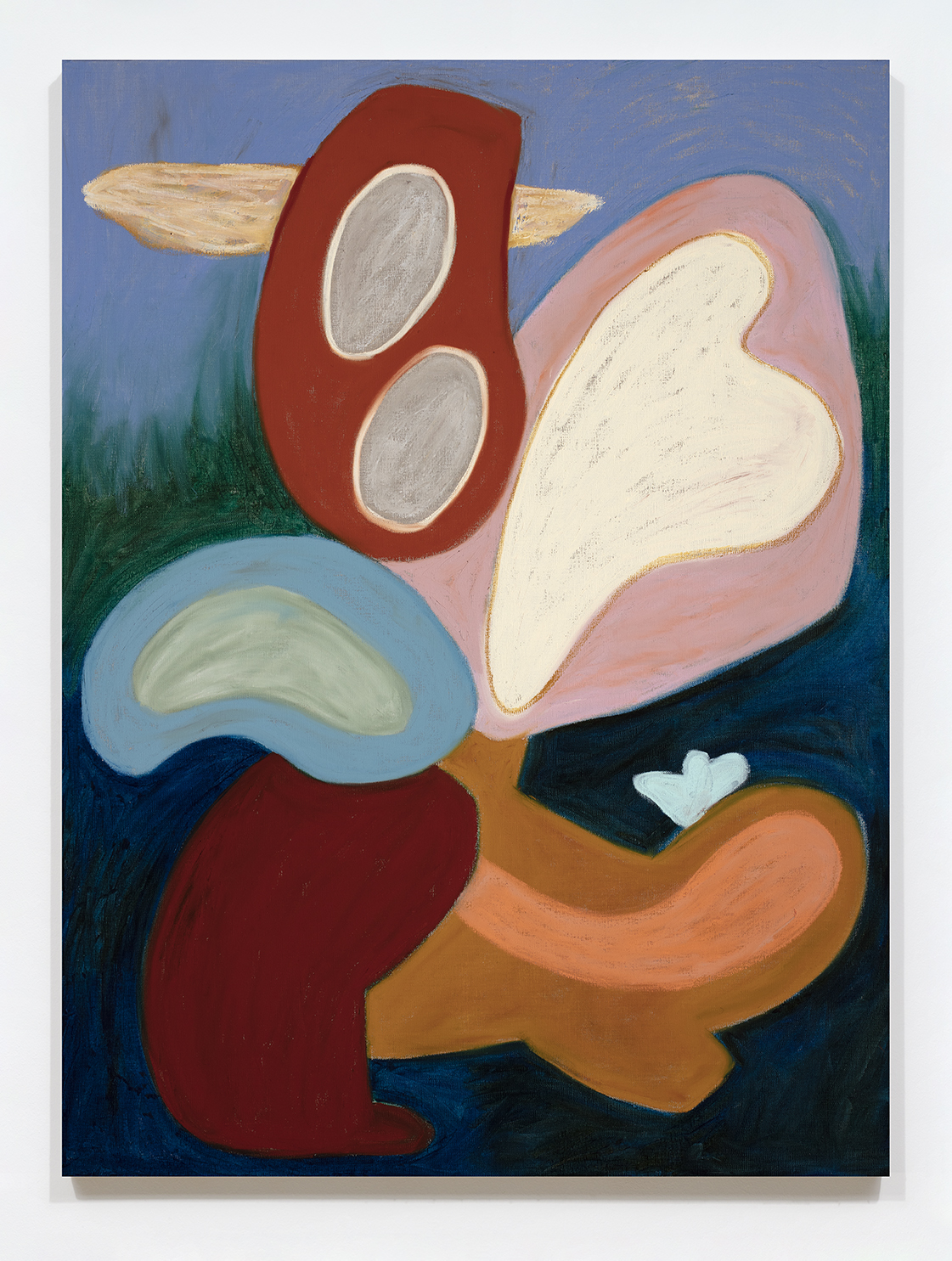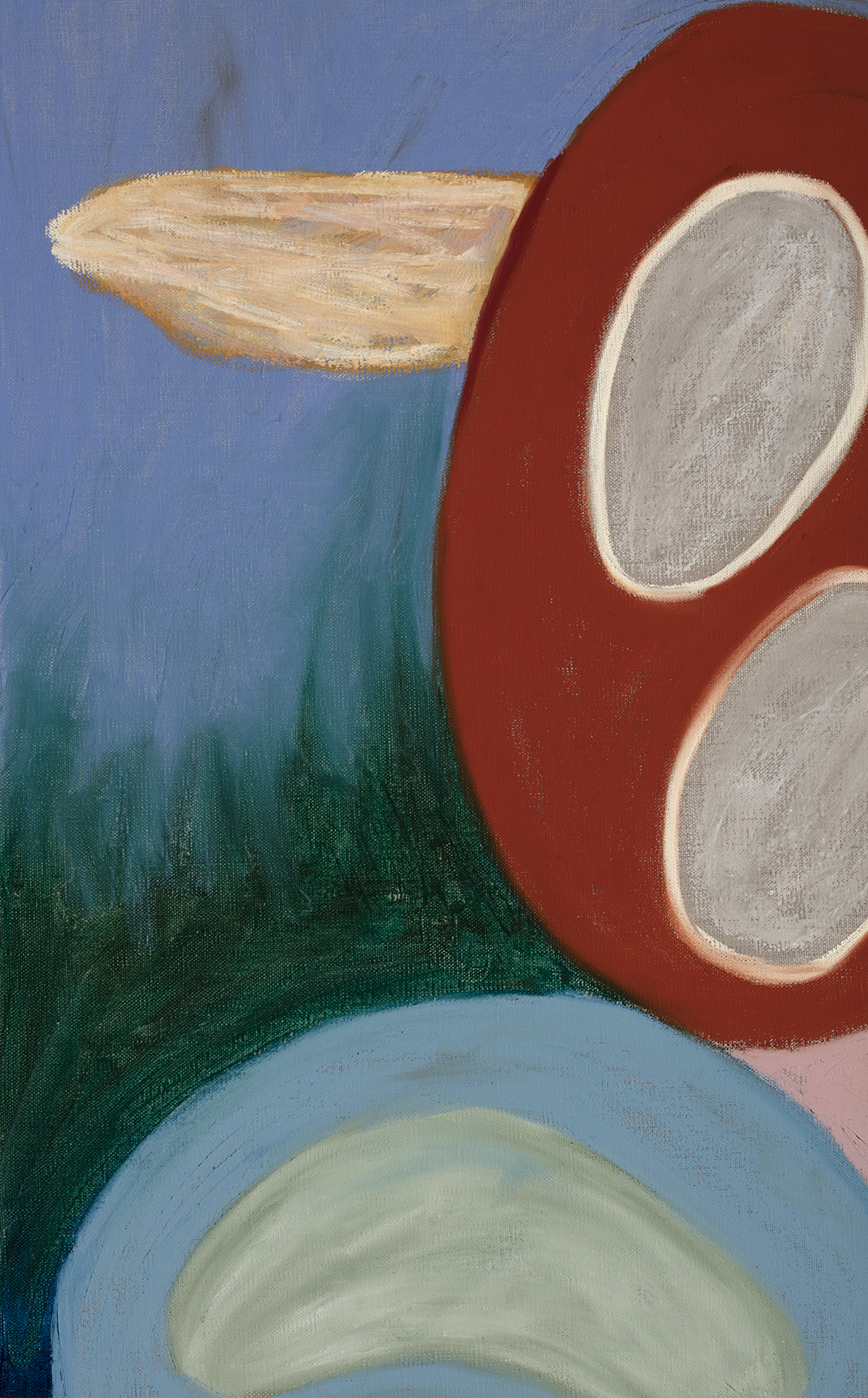Using her own hand as a vessel for intuitive gestures, Pozanti’s works do not mirror existing worlds, but rather, offer up new ones. Works in the show continue to embrace her invented visual language Instant Paradise, 31 glyphs developed by the artist that correspond to numbers and letters from the English alphabet. Using these shapes, Pozanti translates her inner experience through painterly acts as modes of play and a celebration of embodied cognition. This self-imposed symbolic structure and visual system unfold a plane of psychological and spiritual exploration across the canvas.
As a whole, the exhibition constructs a kind of planetary system—a universe where the abstract forms become mystic inhabitants or undiscovered species. Earth tones and natural pigments throughout the paintings similarly reference a sensorial interaction with the organic world. The show’s interrelated gestures freely speculate upon a serene ecology, where lush hues suggest pops of mushrooms, flowers, sea foam, corals or animals that have not yet existed. Rather than seek an essential image as its desired outcome, this generative approach to painting, much like engaging with ecological surroundings, is transcendental and imaginative.
Lingering situates reverie and contemplation as artforms, delving into the immeasurable possibilities of when space-time is viscerally felt and activates the unconscious; “lingering” is both a method of viewership as well as a radical form of presence. Collectively, Pozanti motions towards a lyrical abstraction, where pure, harmonious feeling flows outward without the impositions of conceptual limits or restraints. This forms a series of proposals for reflection and deceleration, embracing the beauty of the artwork without finality or neat resolution. By doing away with absolute representations and slowing the pace of production, Pozanti demonstrates that meditative processes and improvisational experiences can inhabit forms in worlds all of their own.
